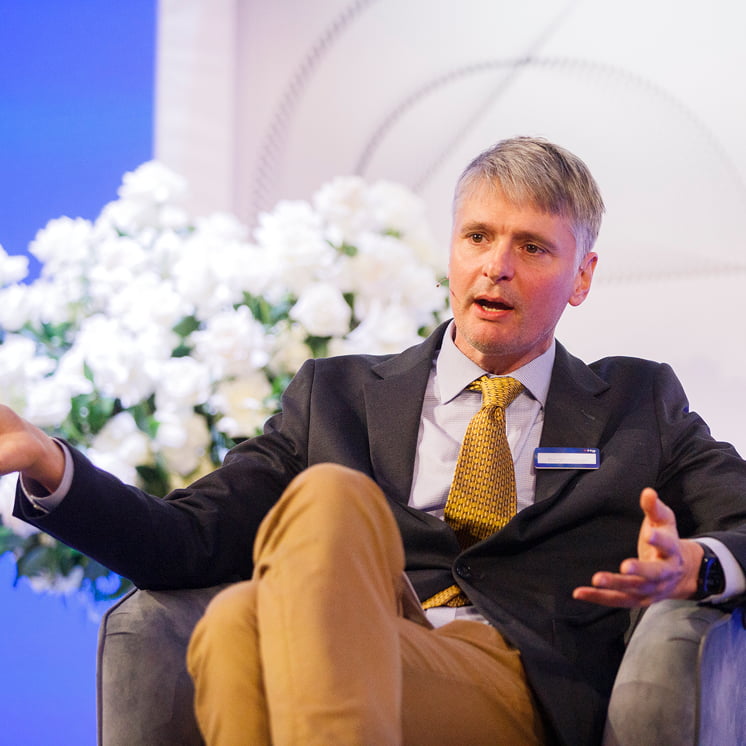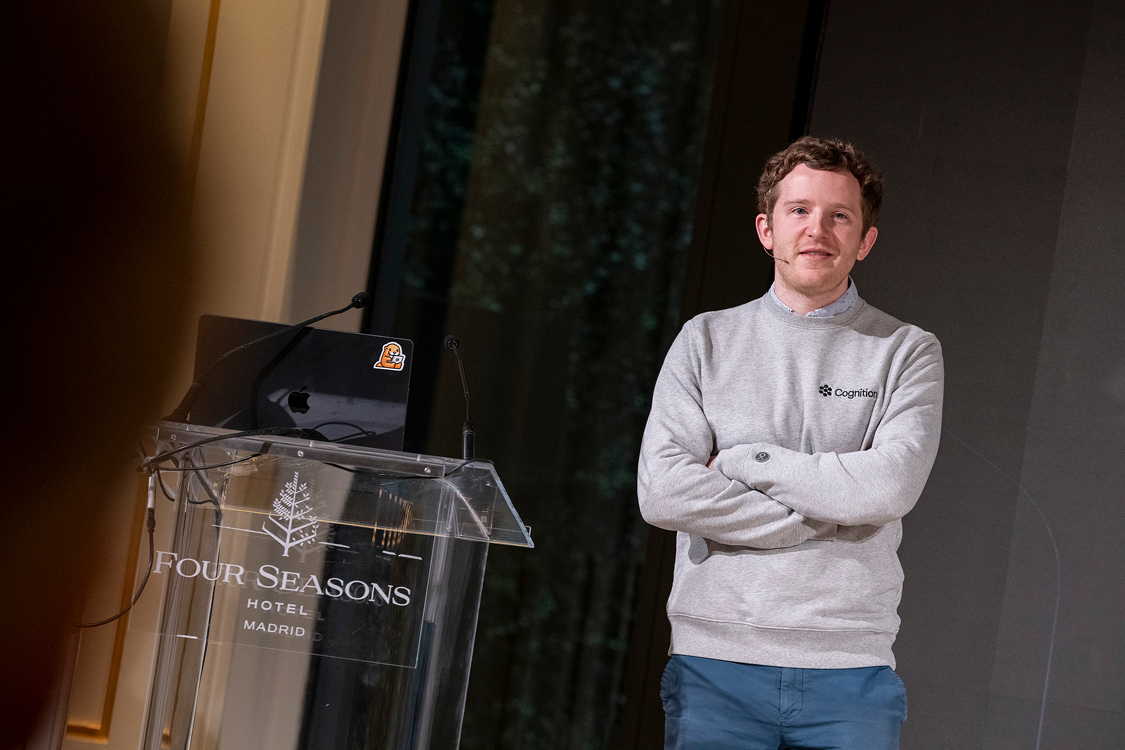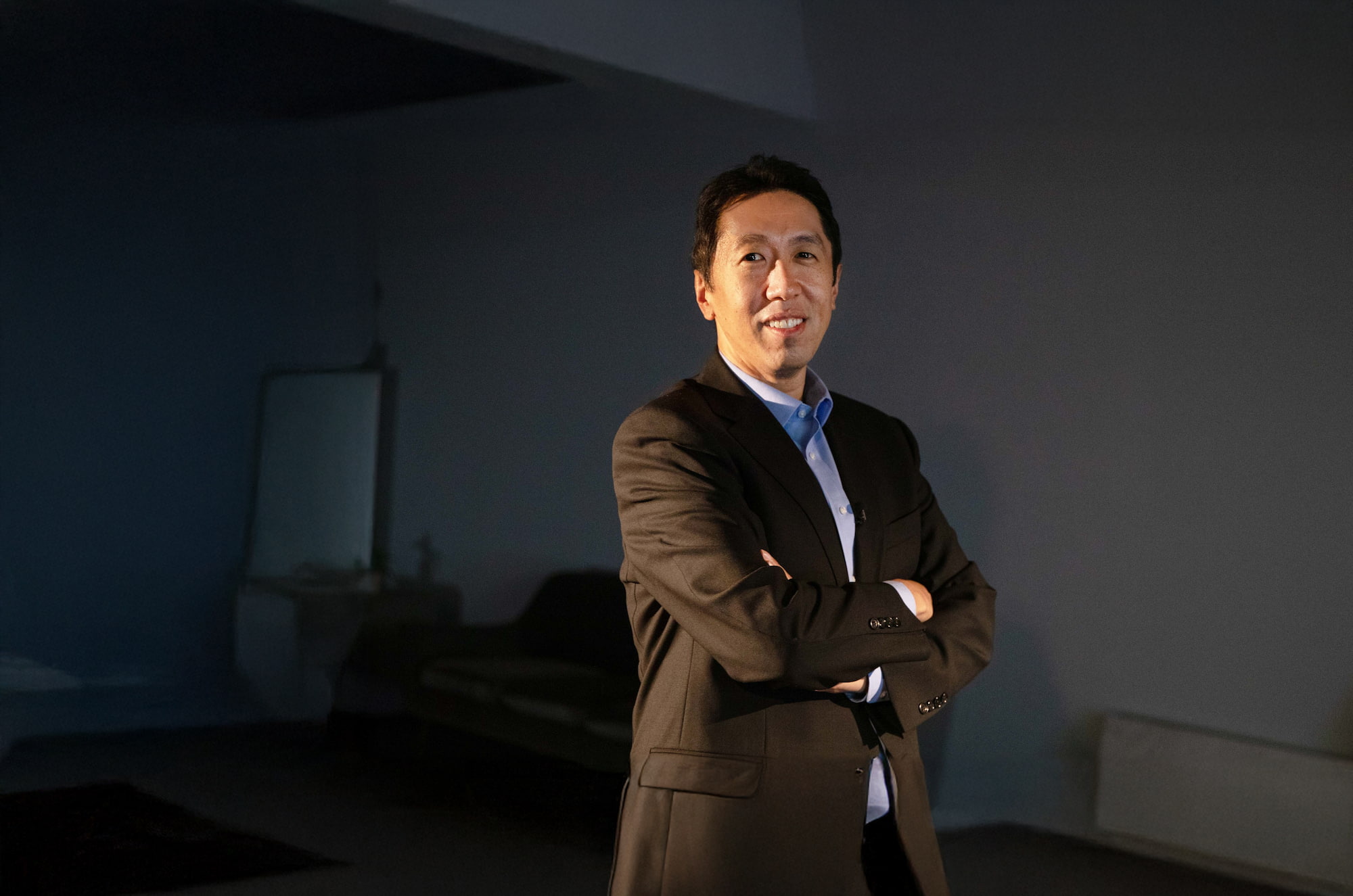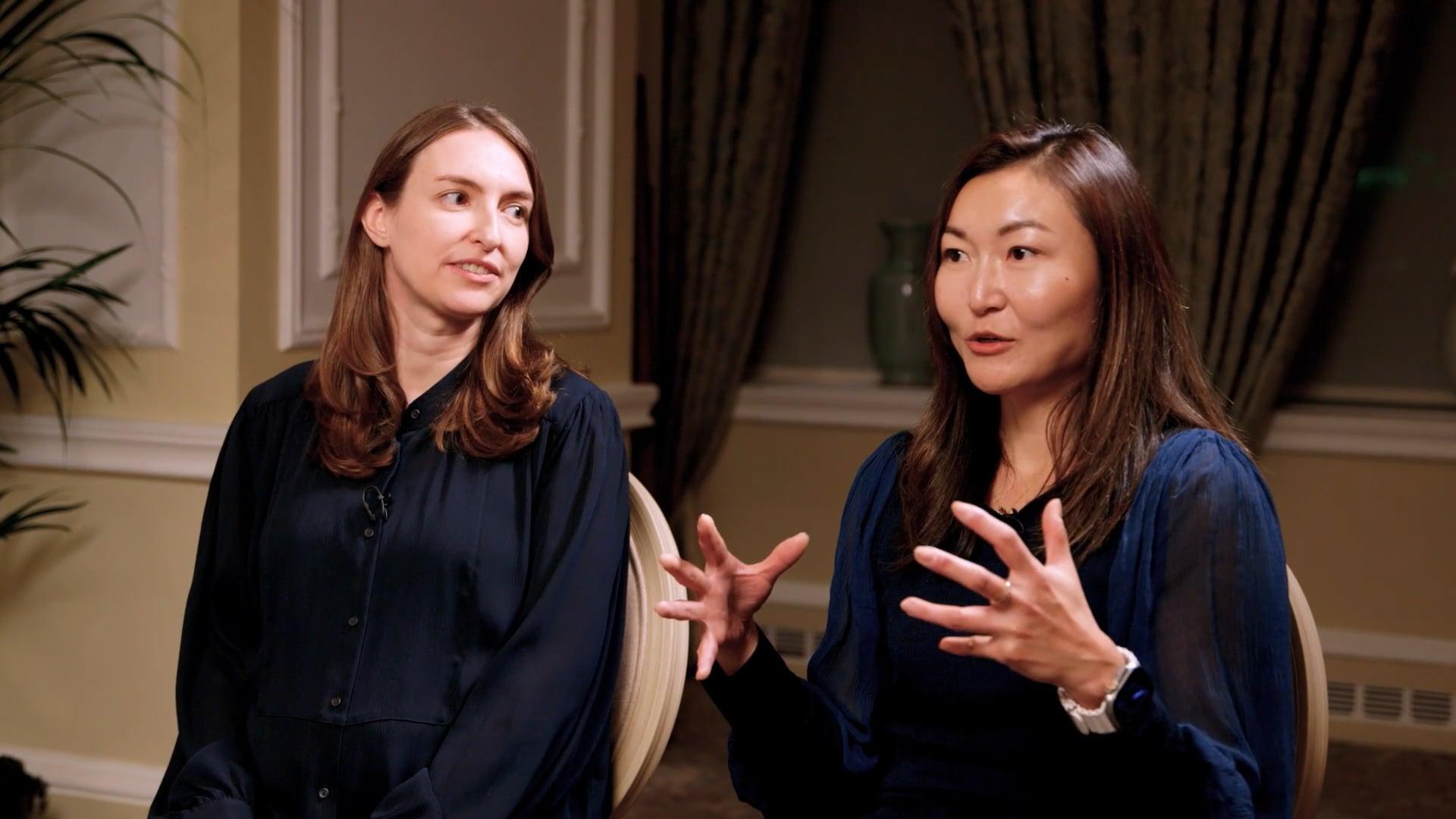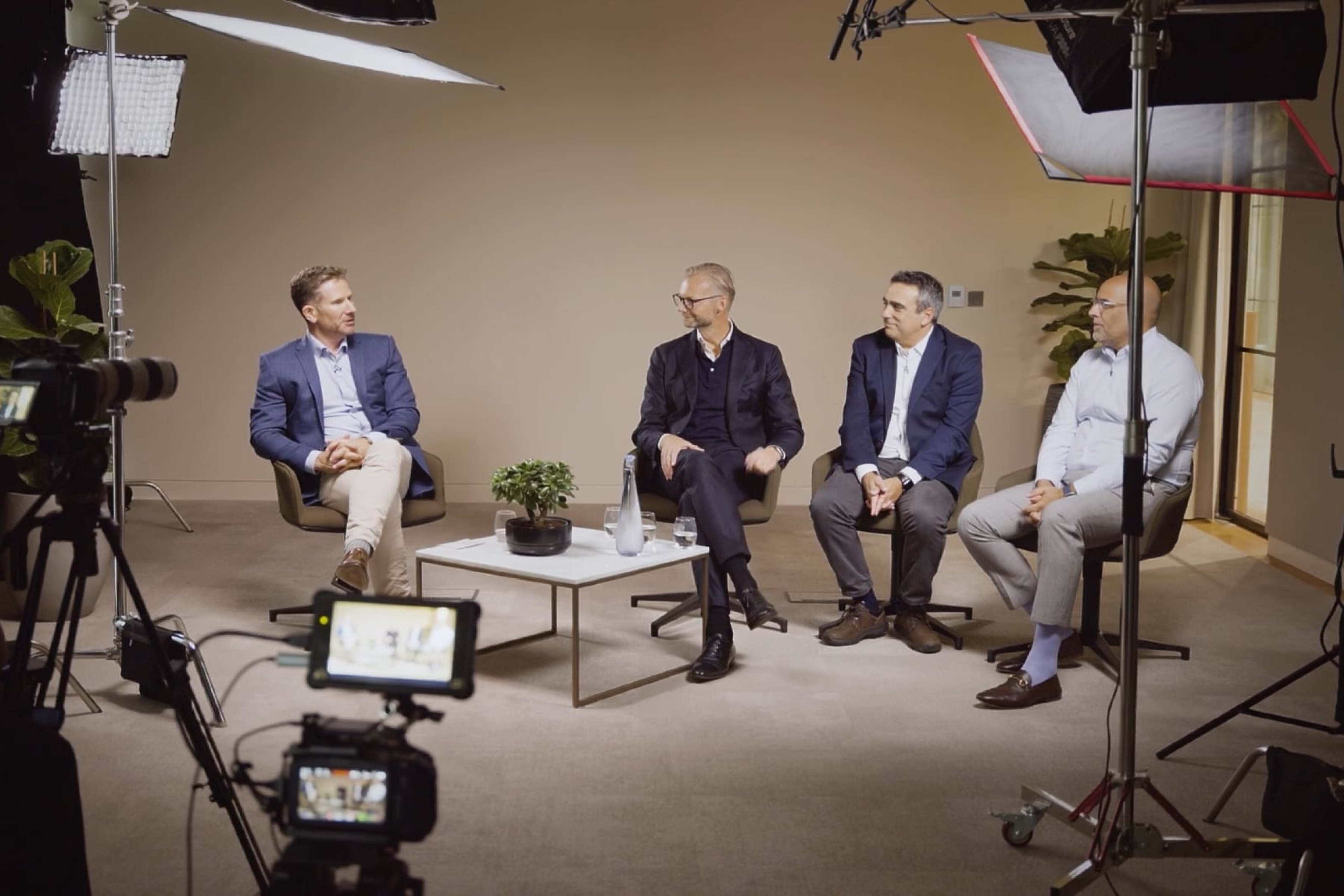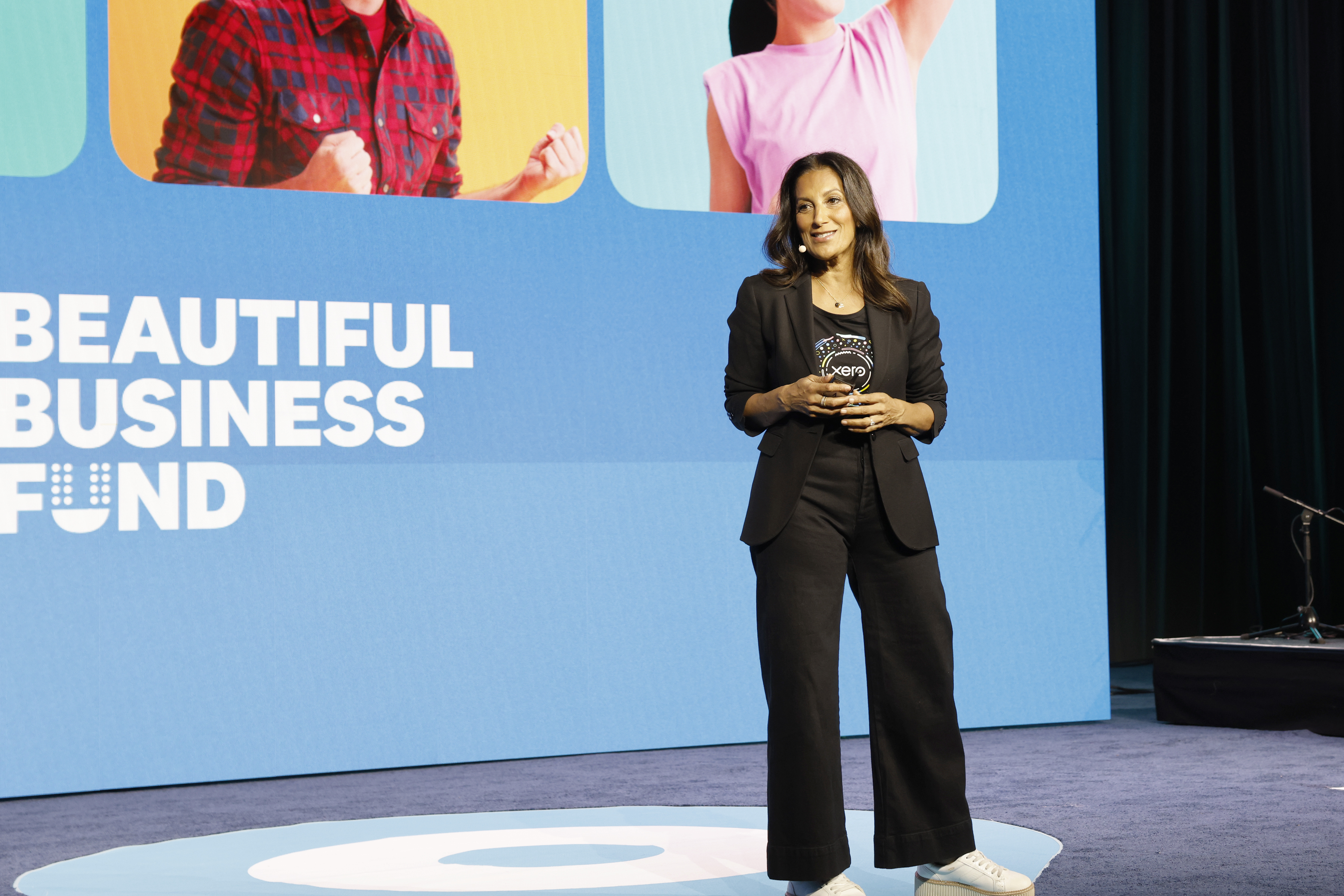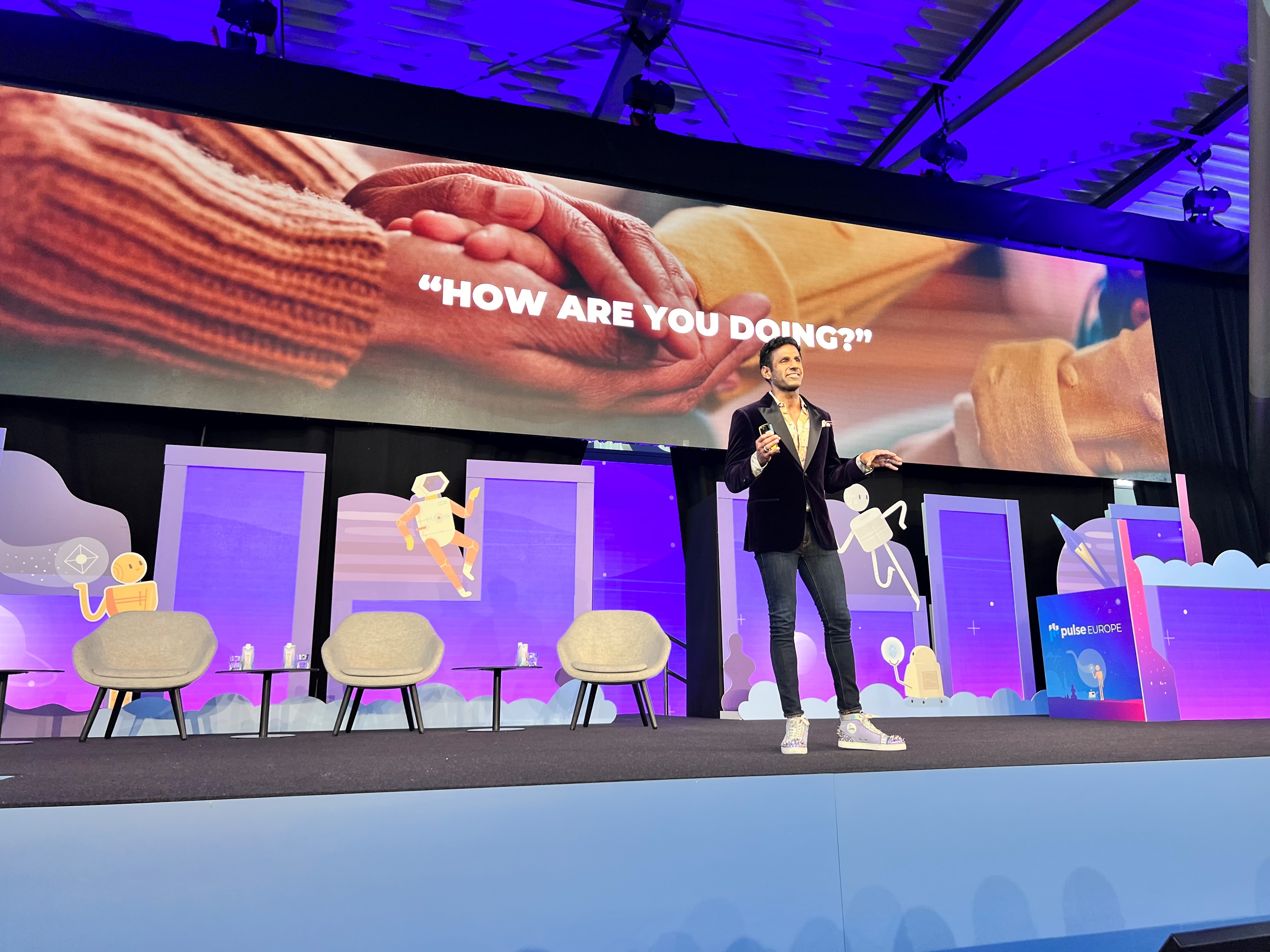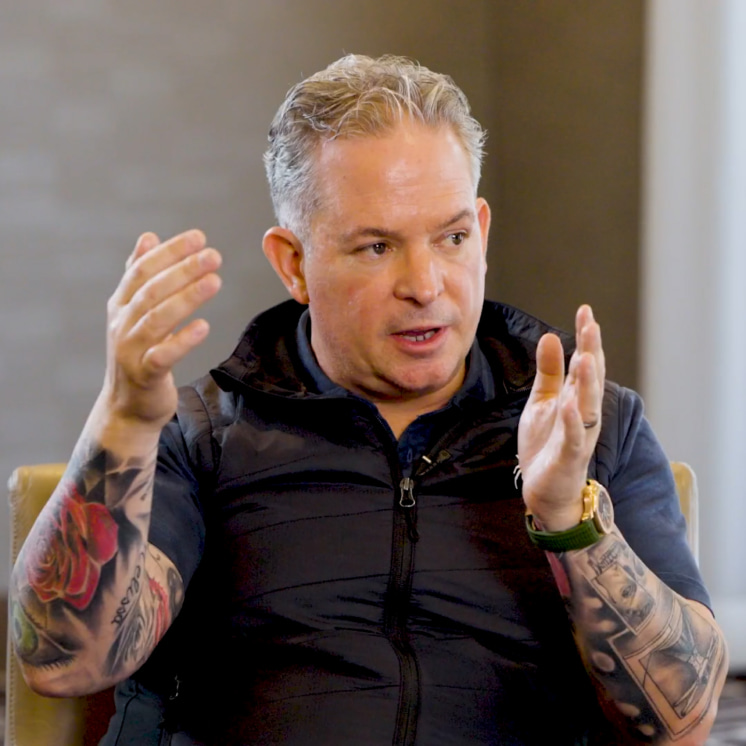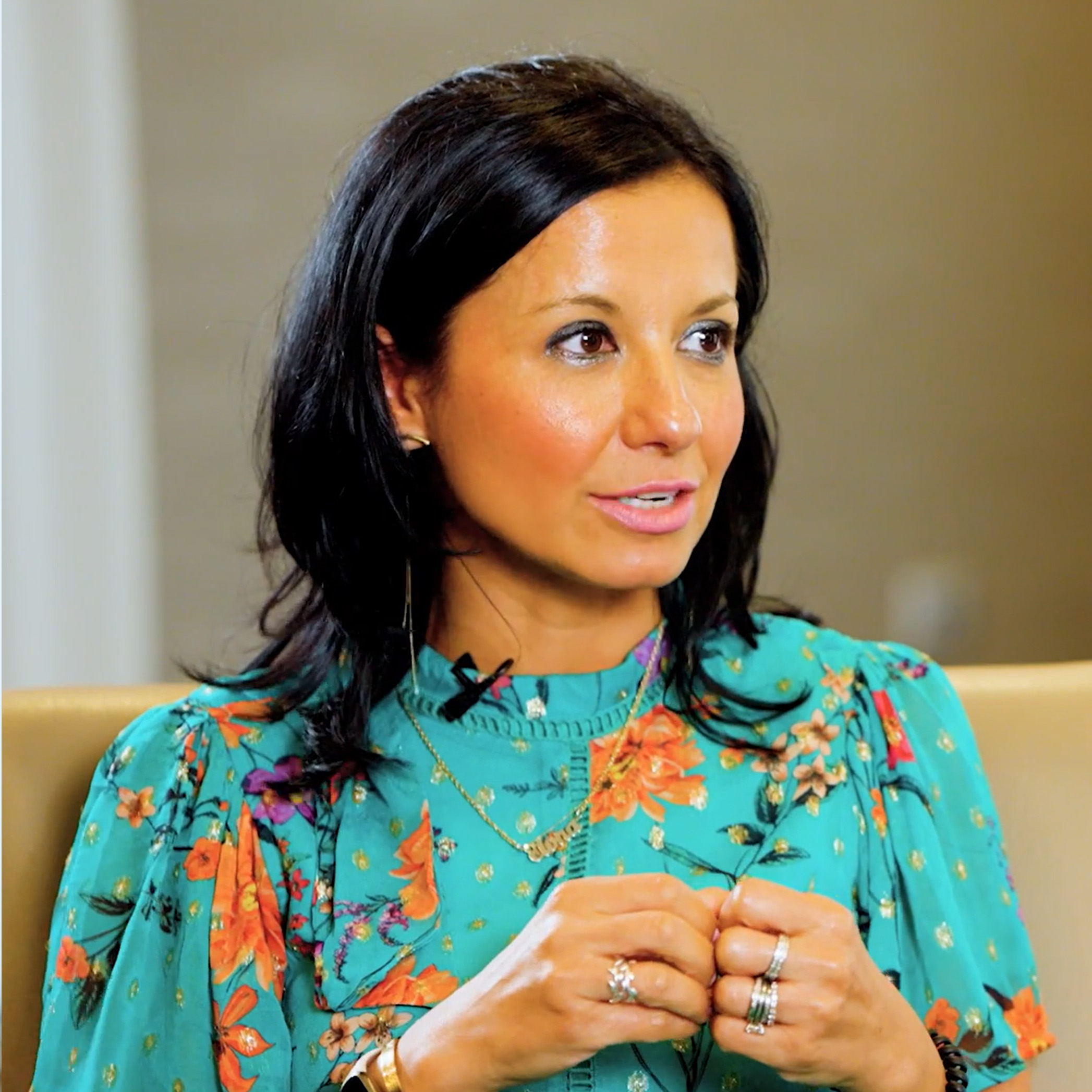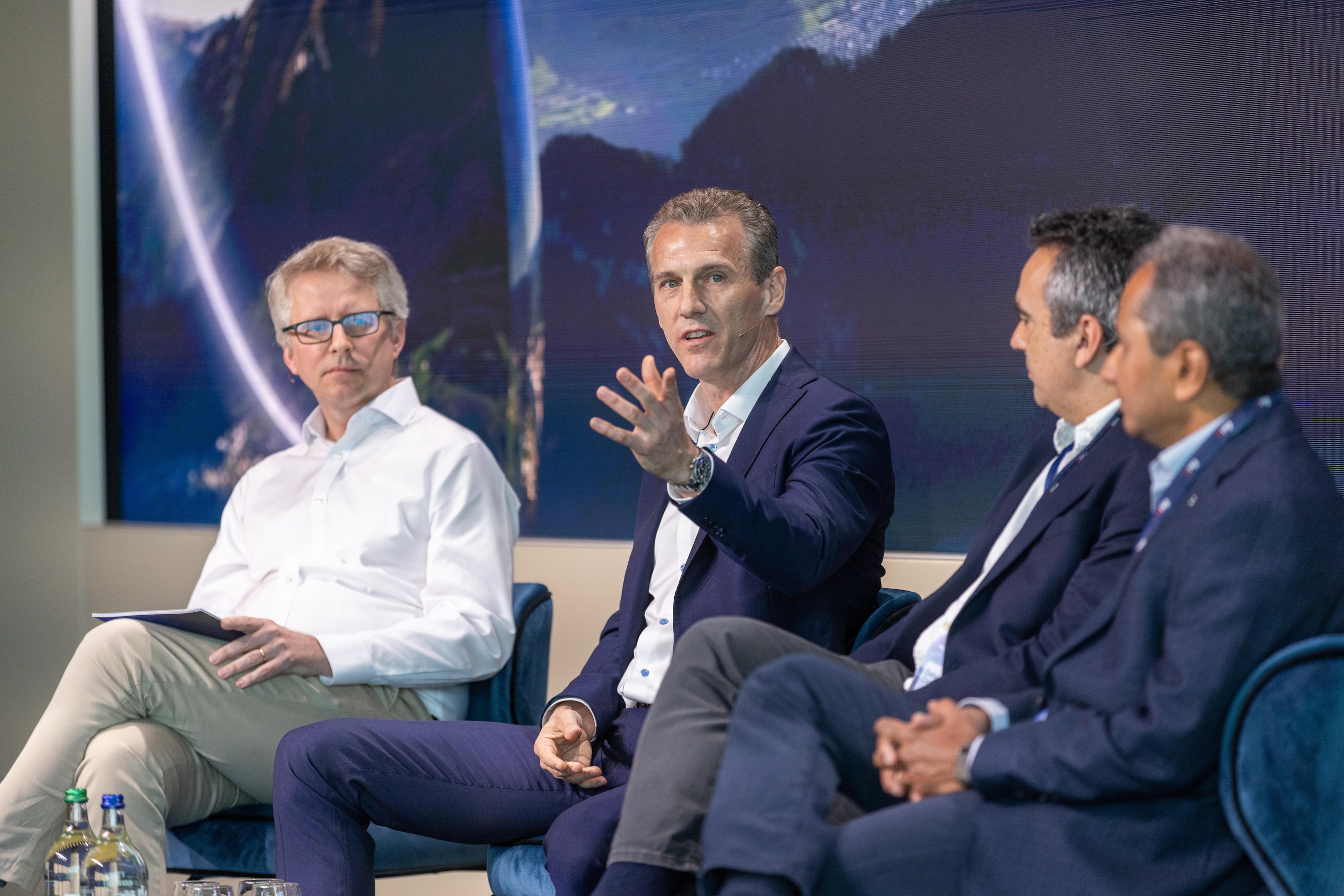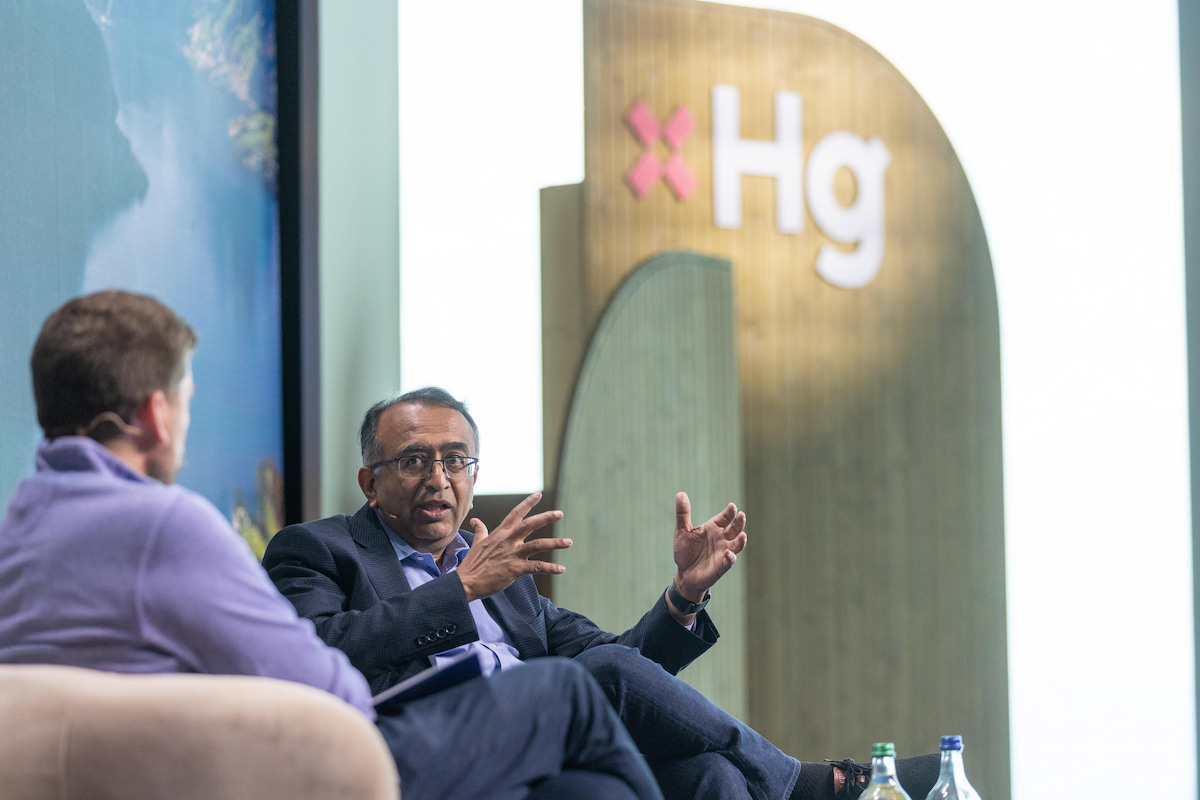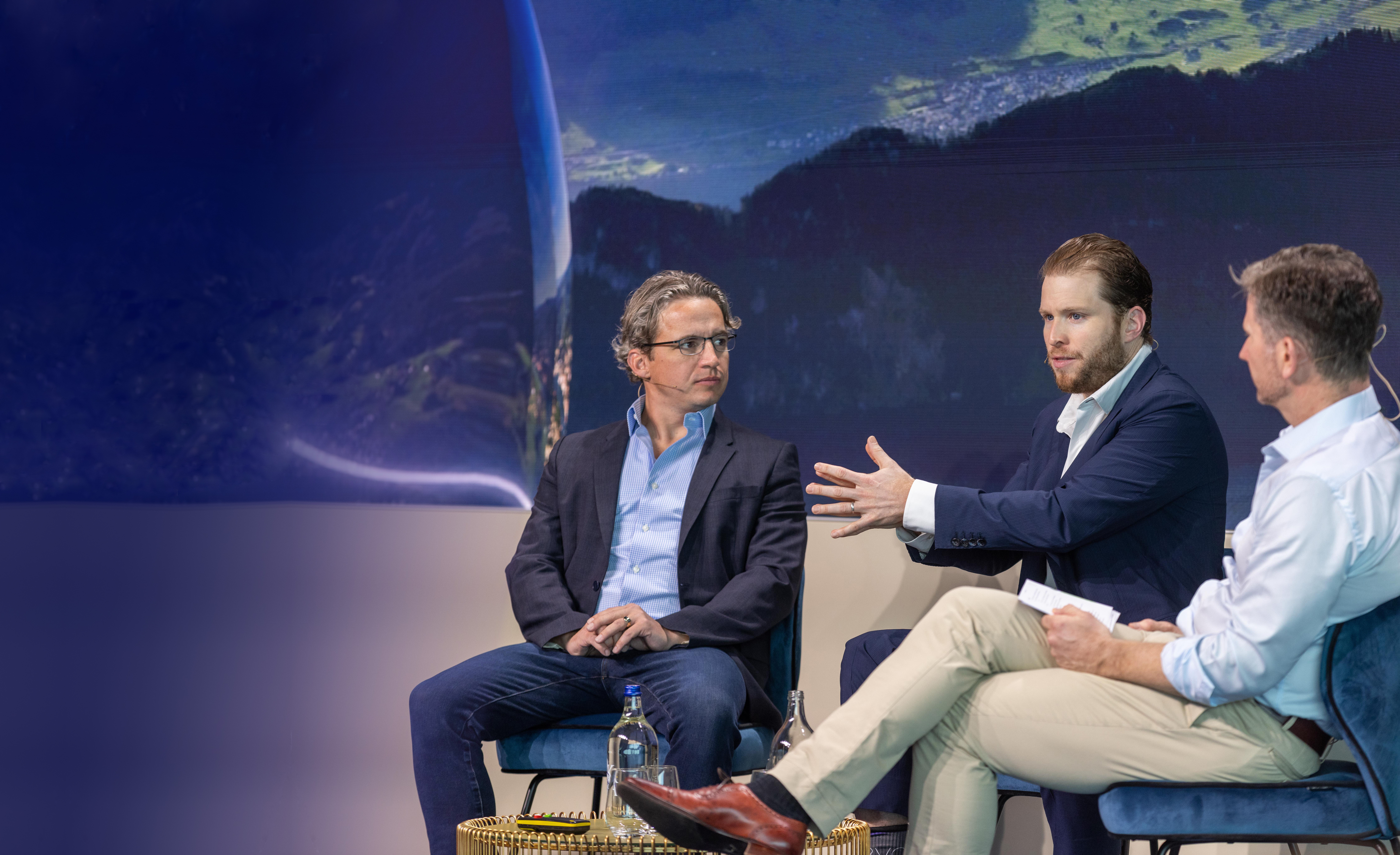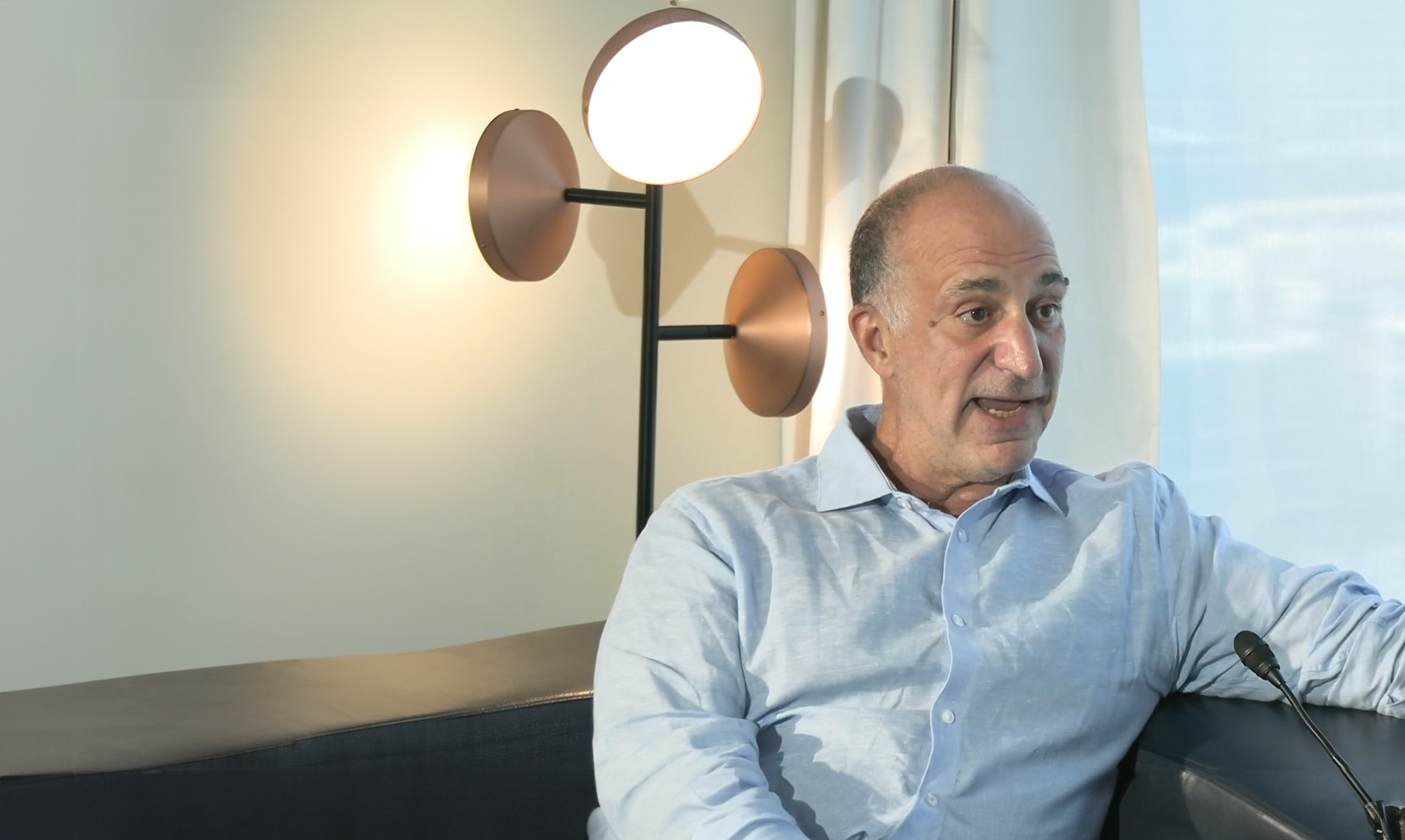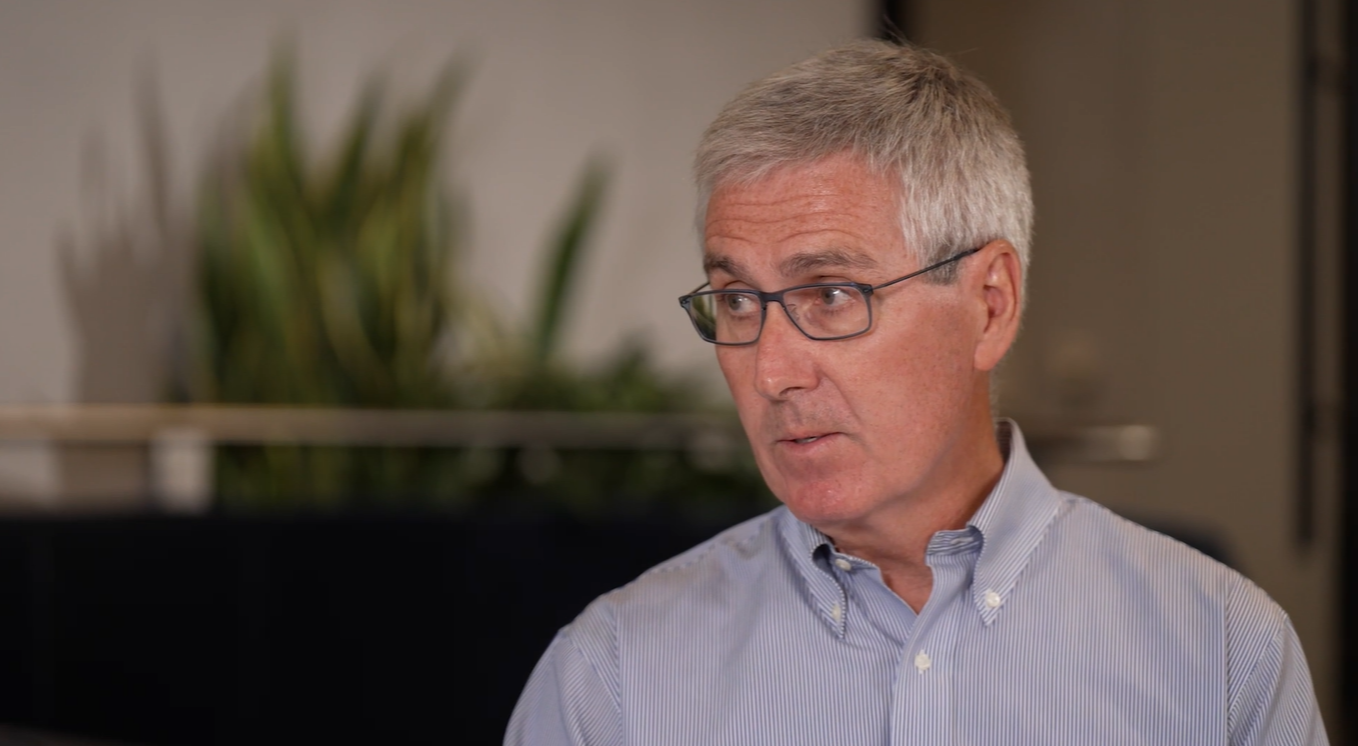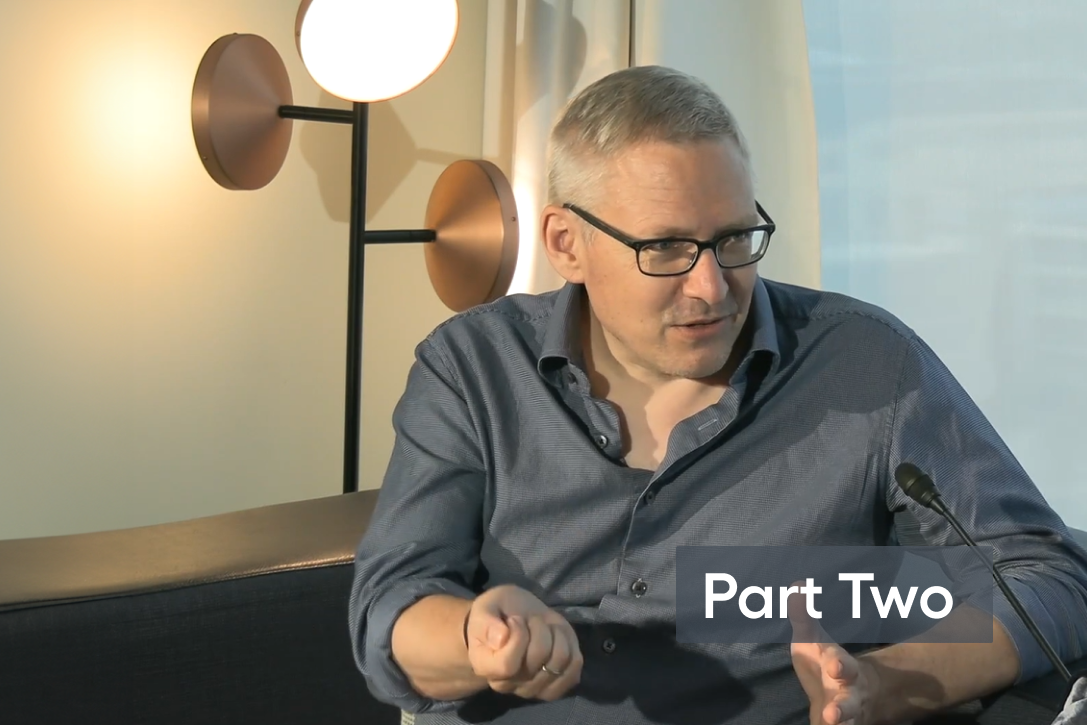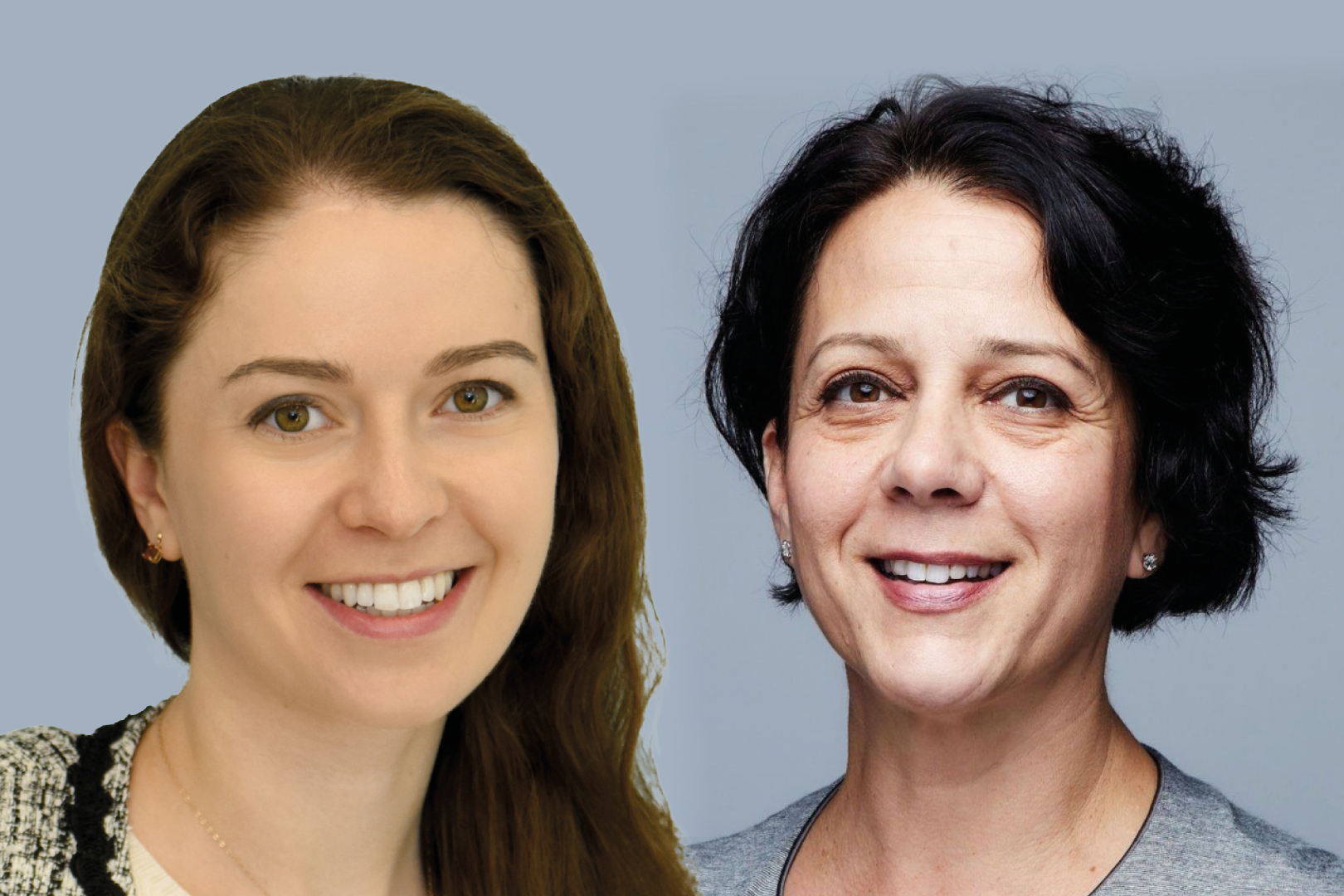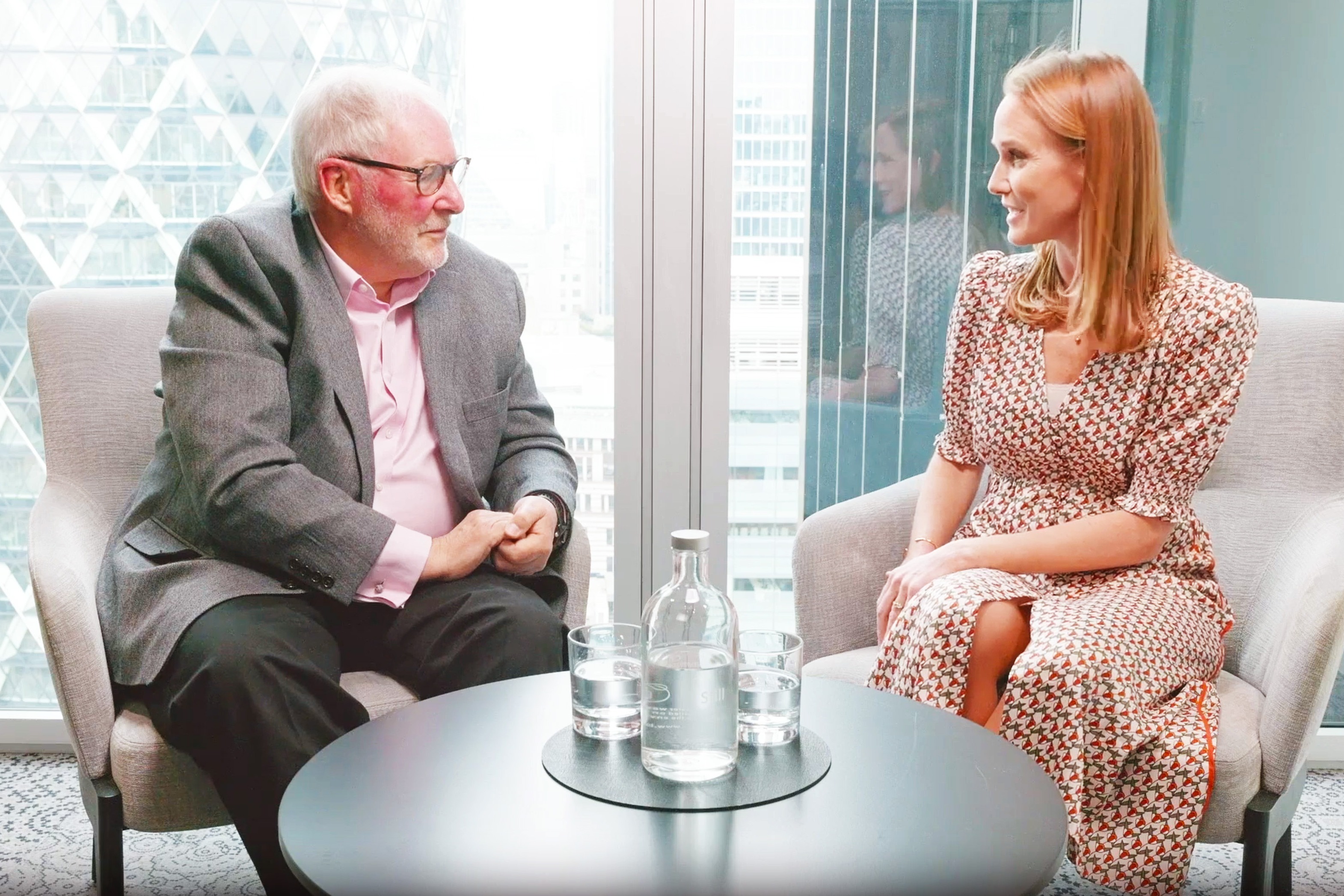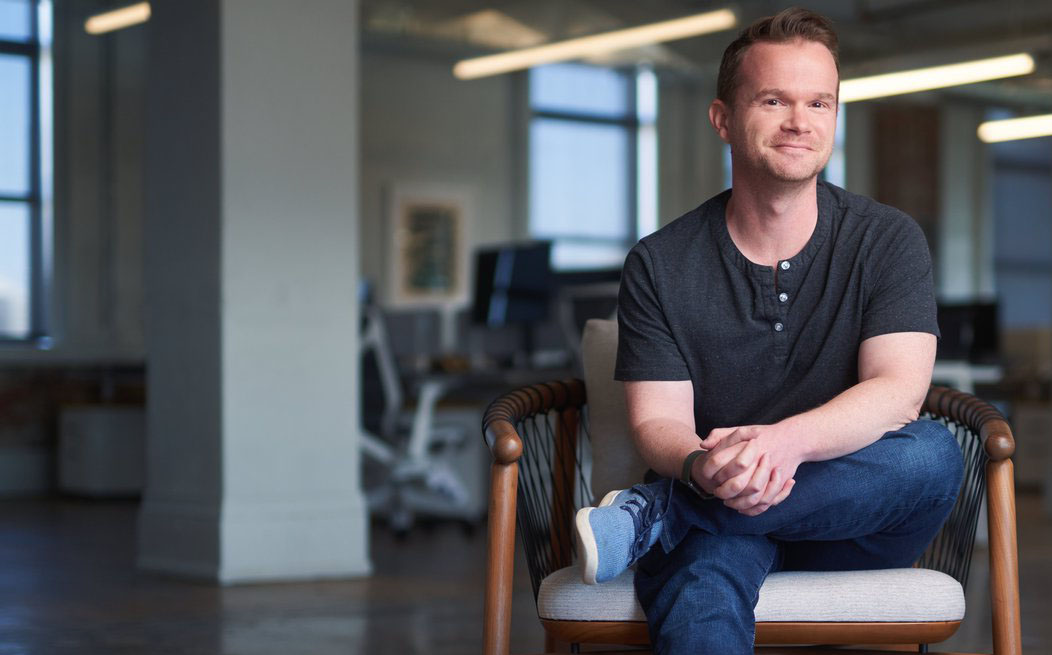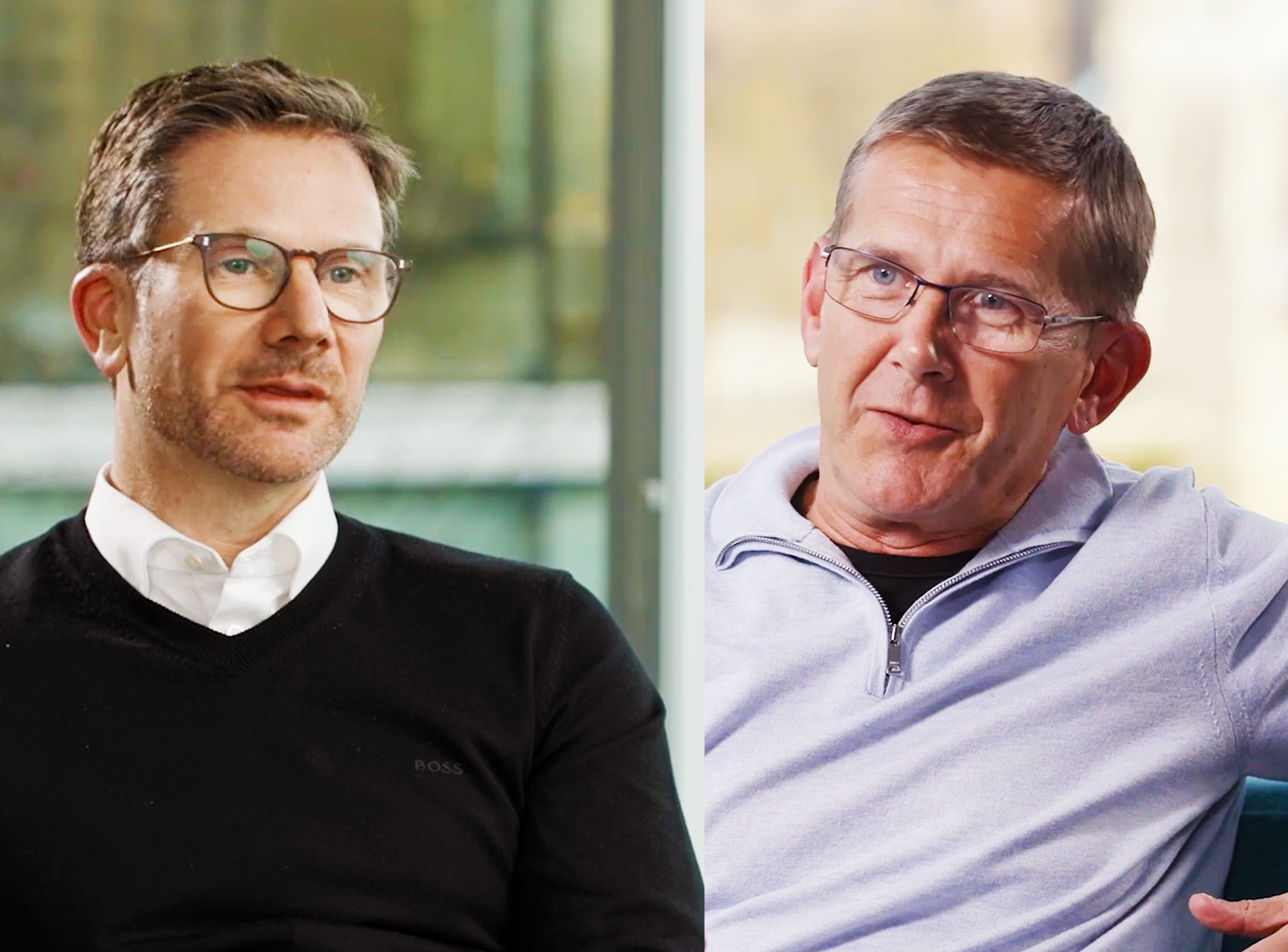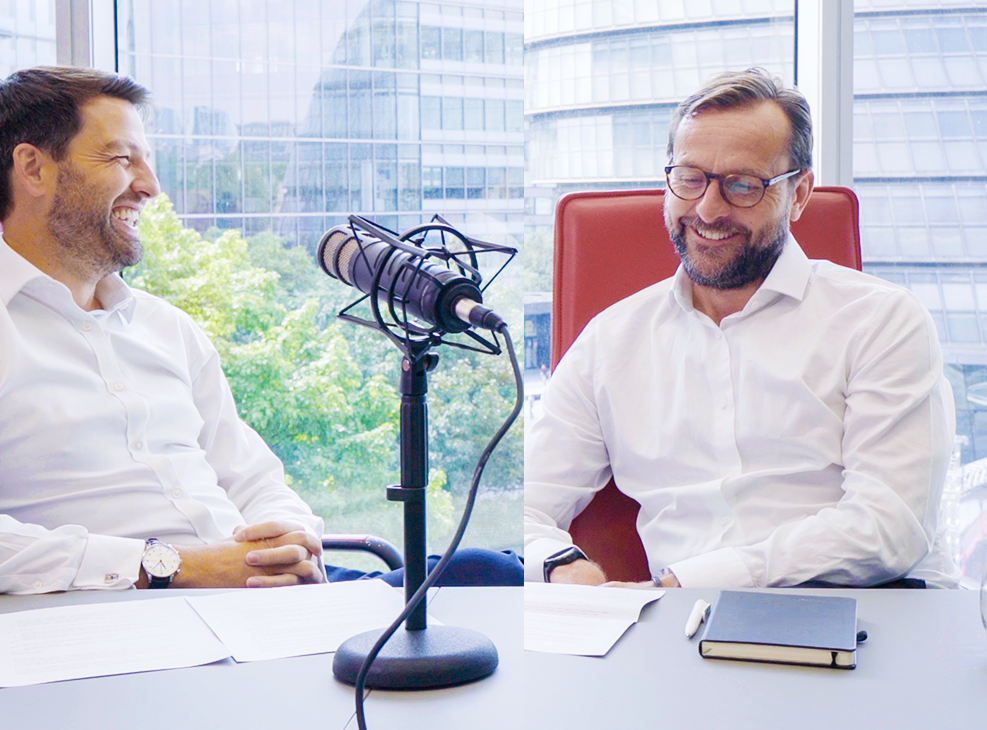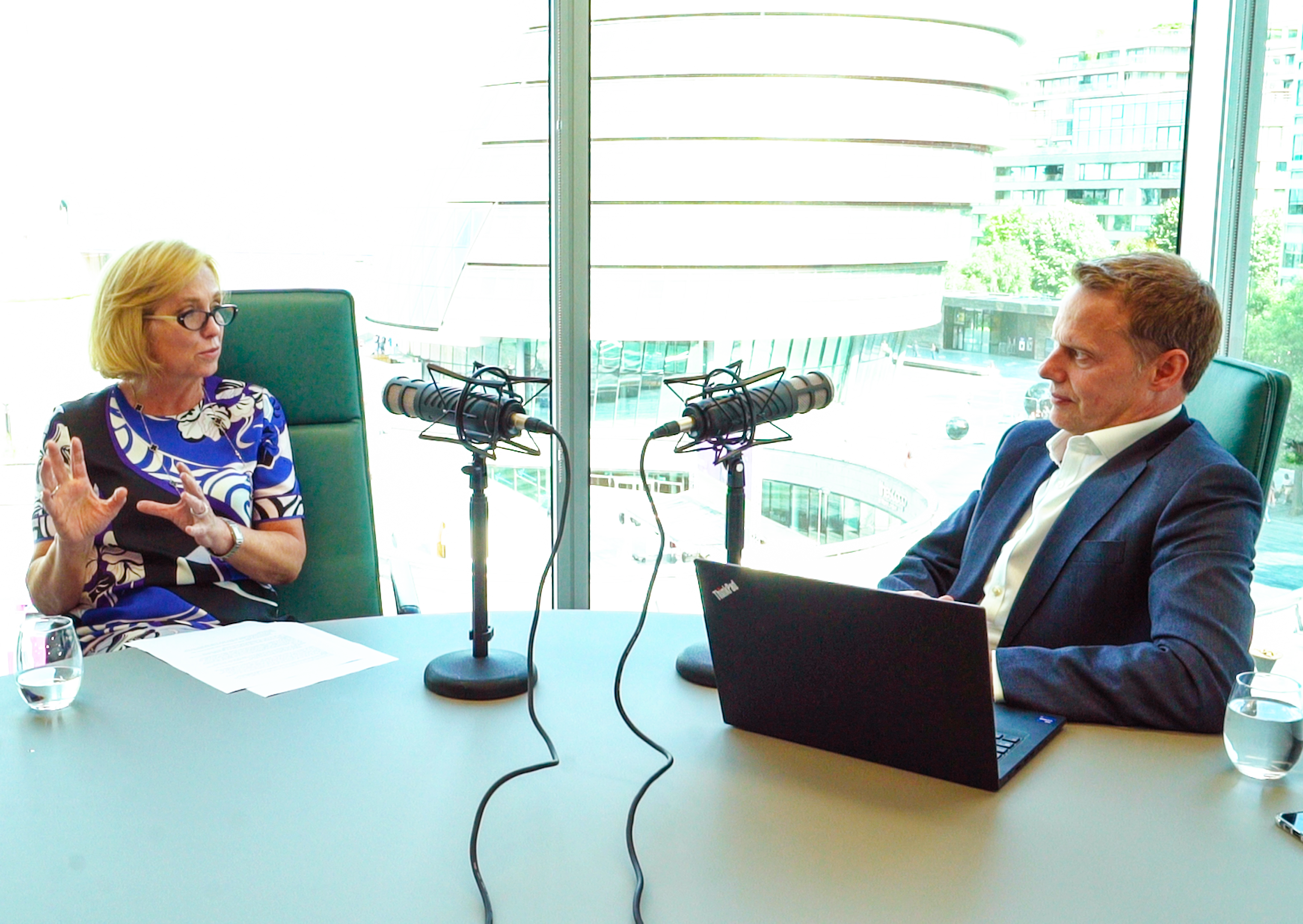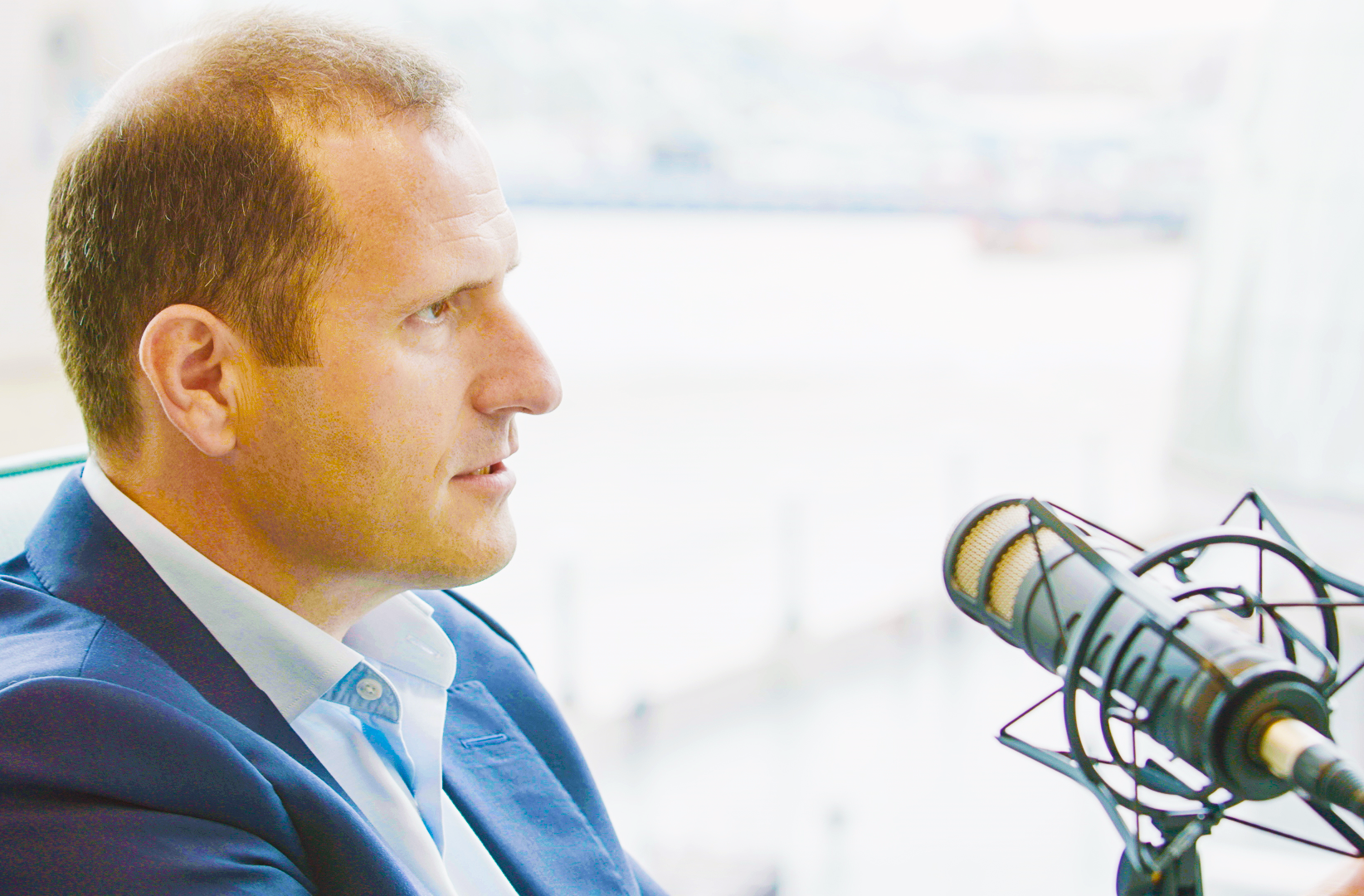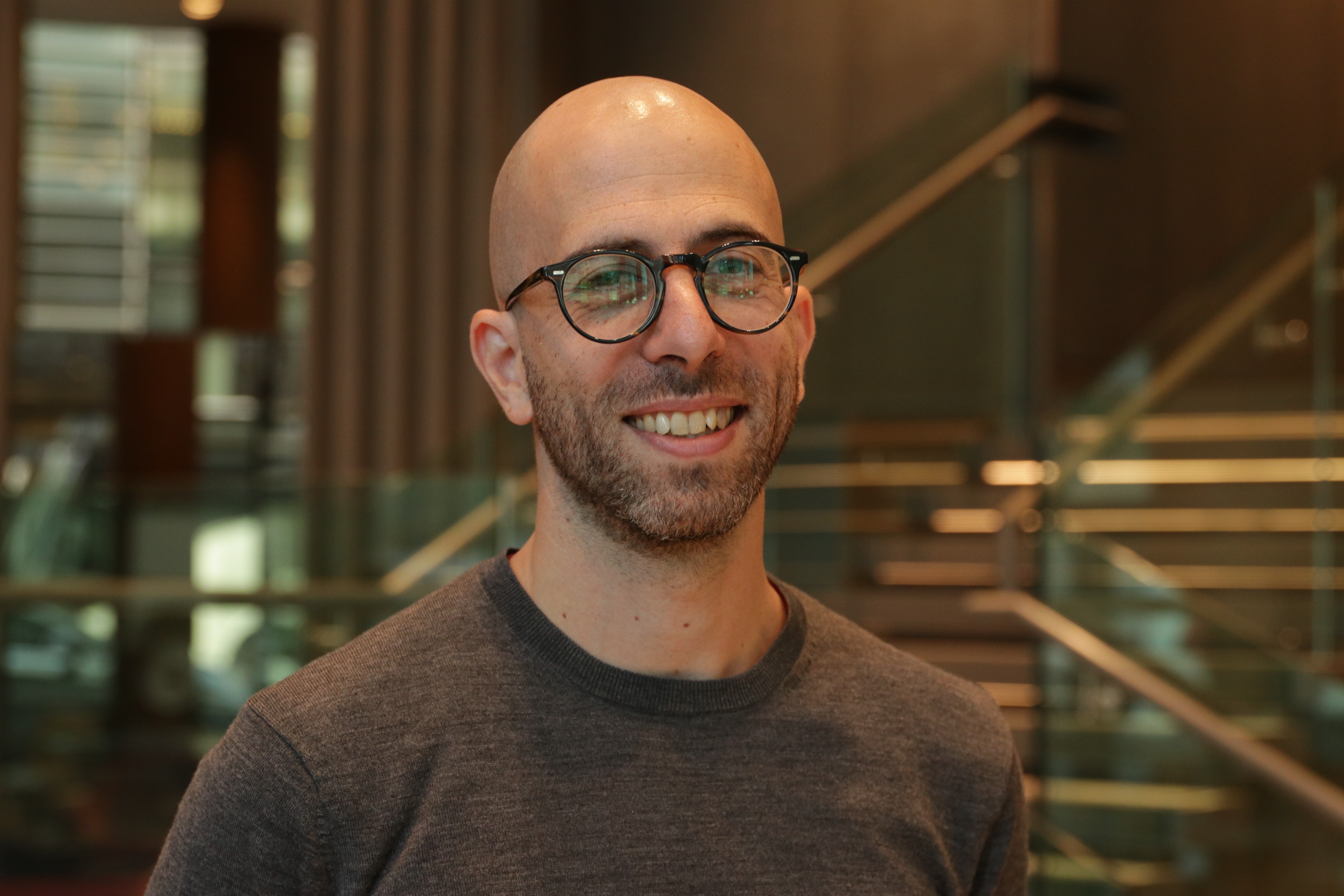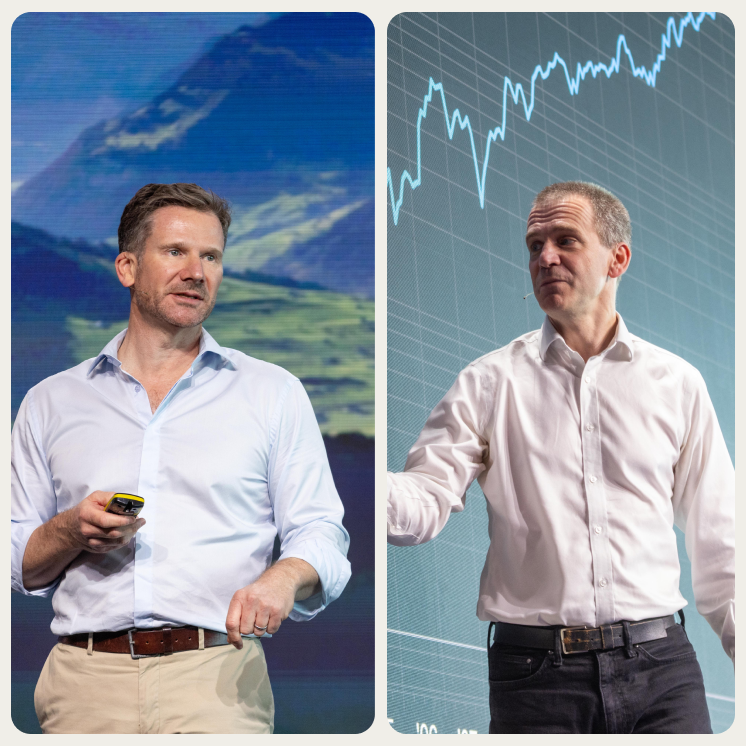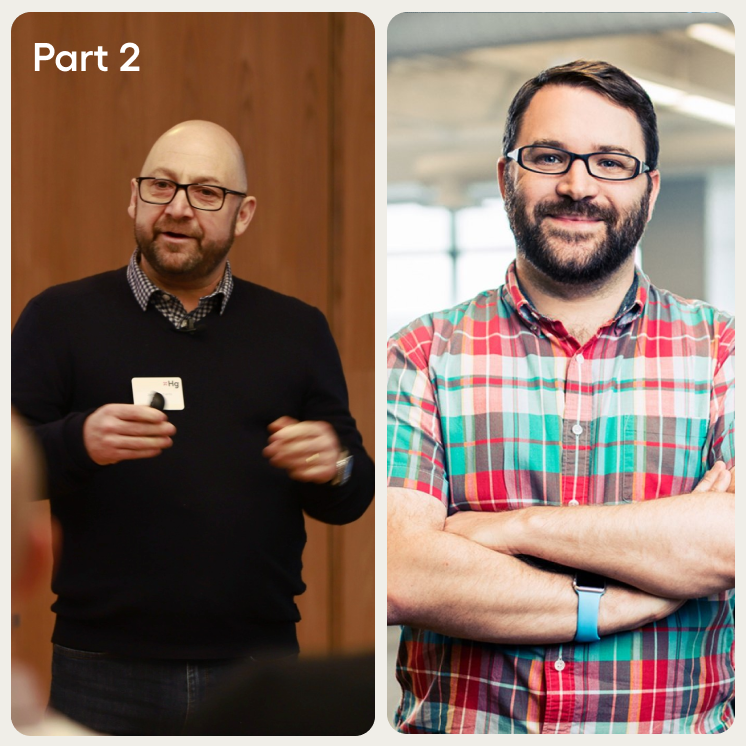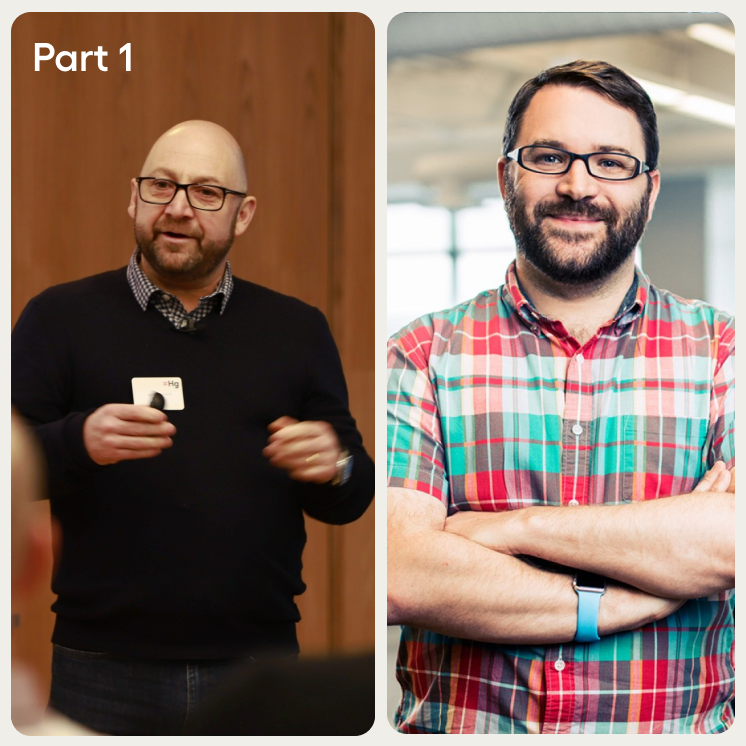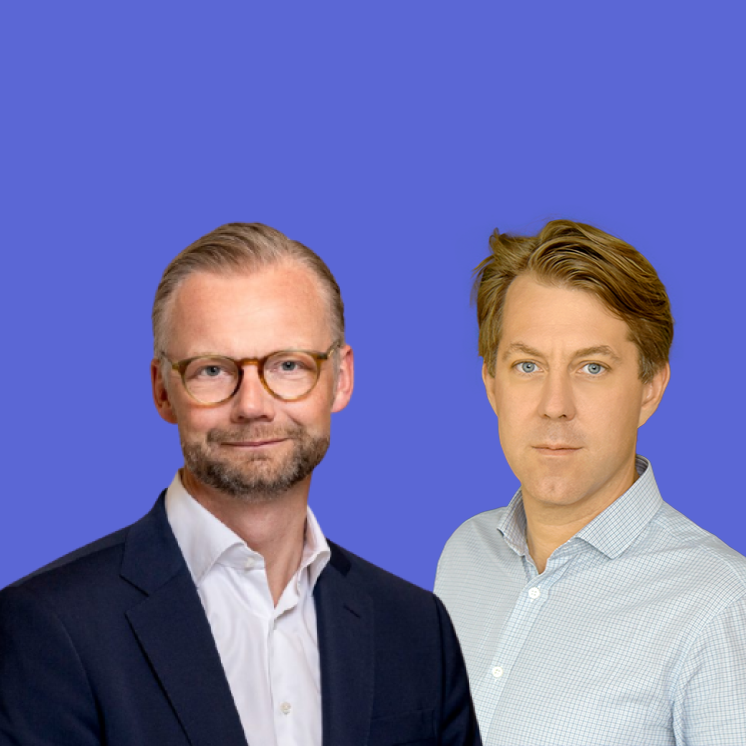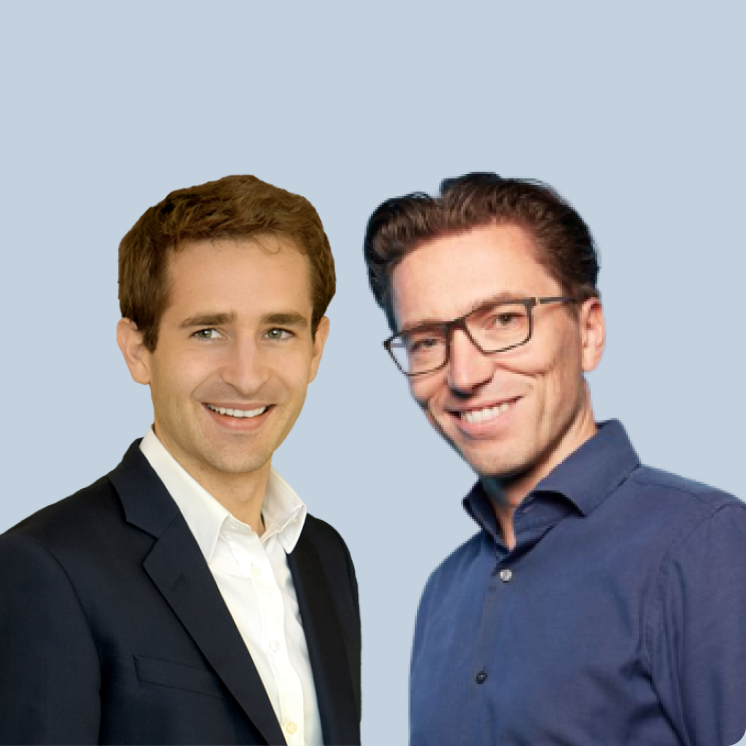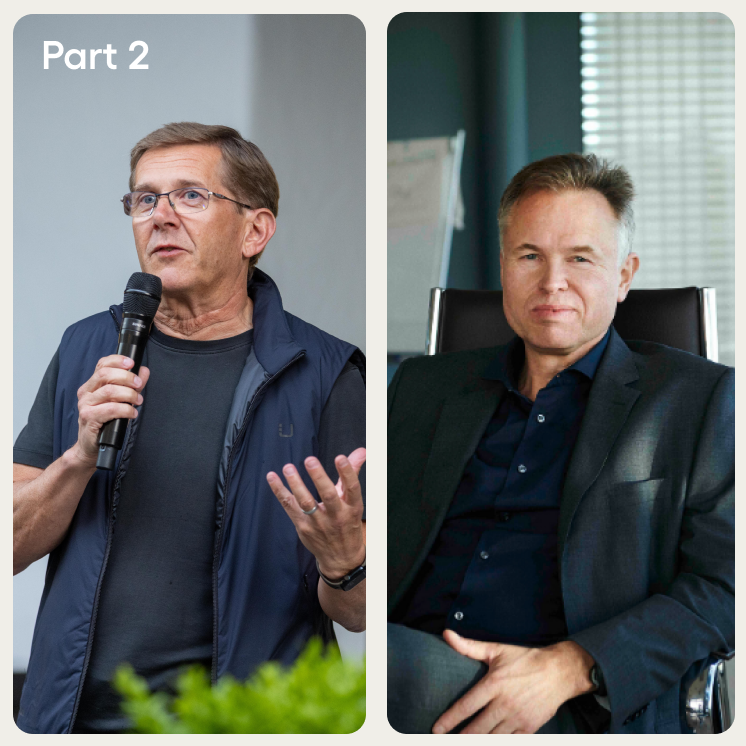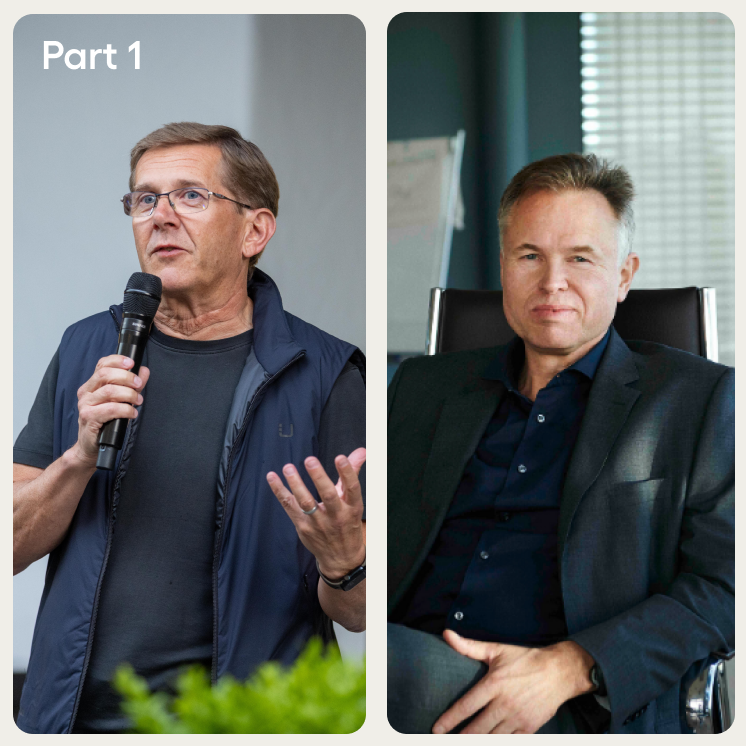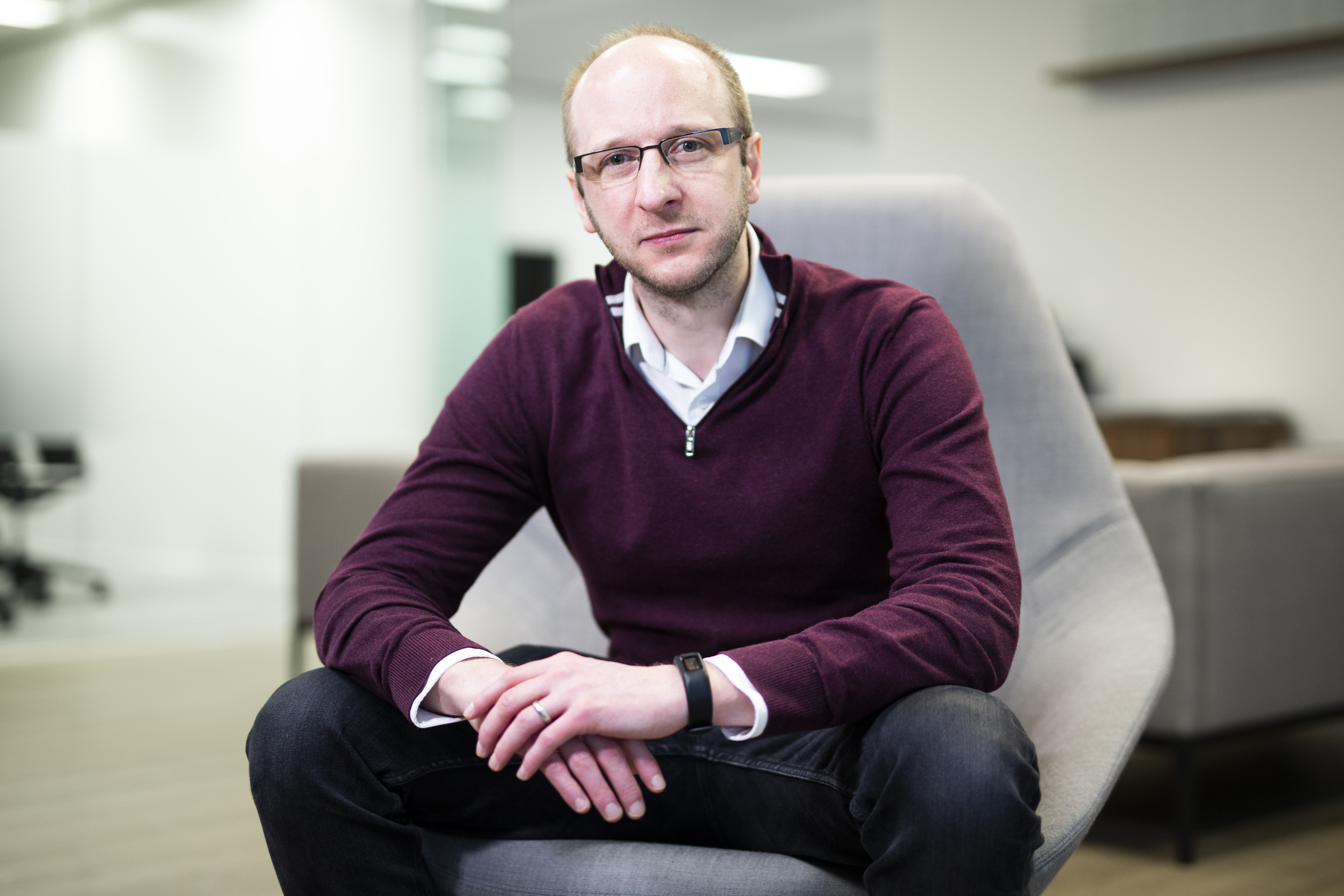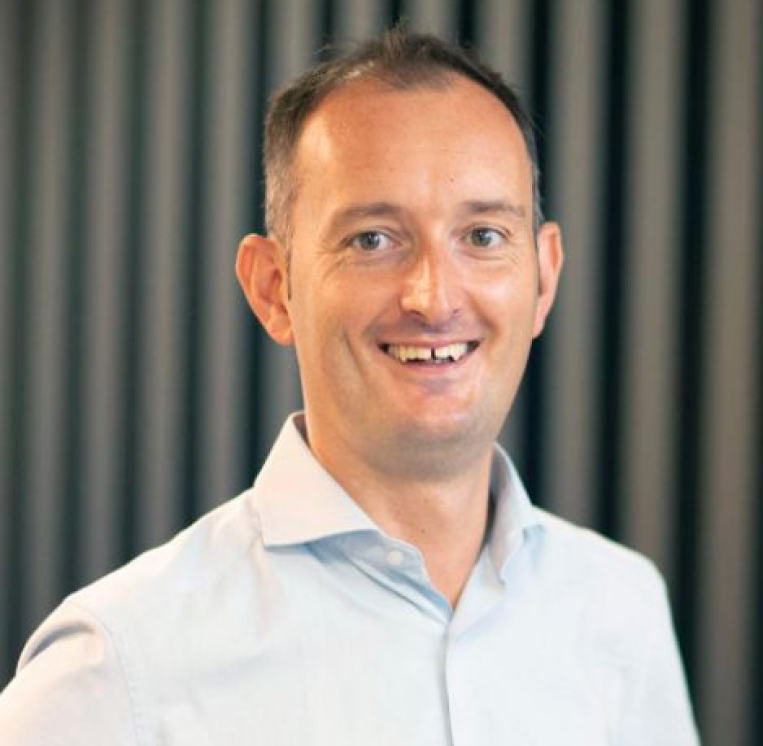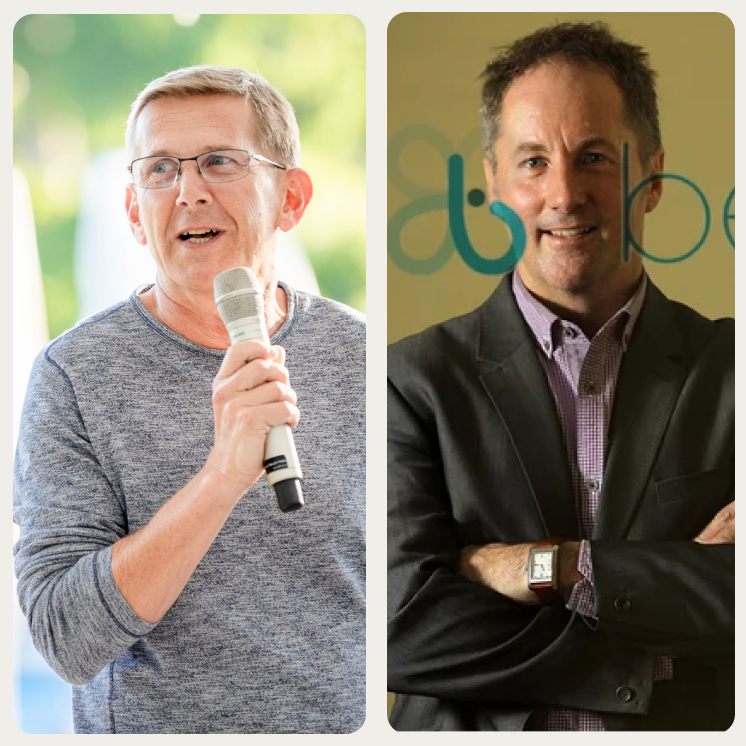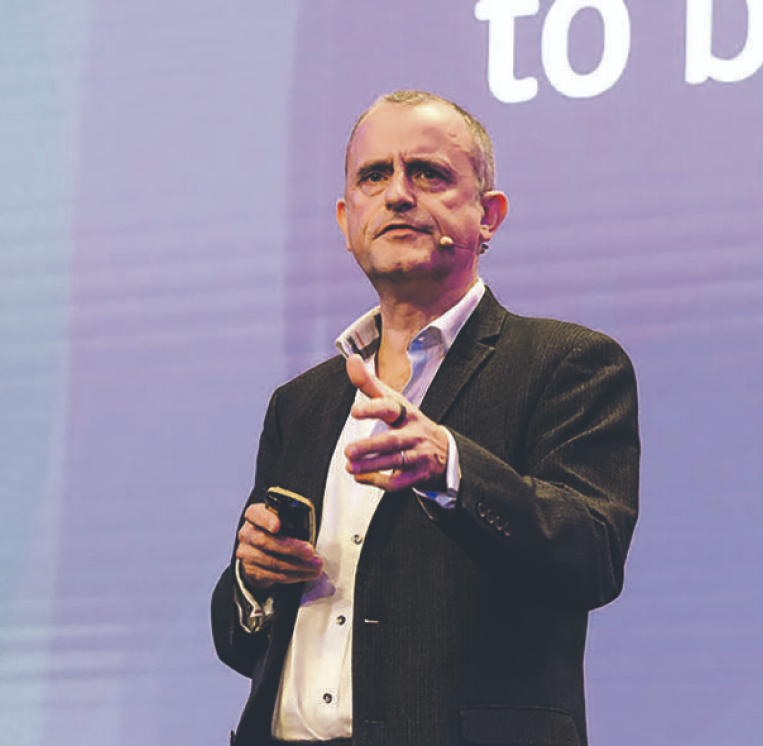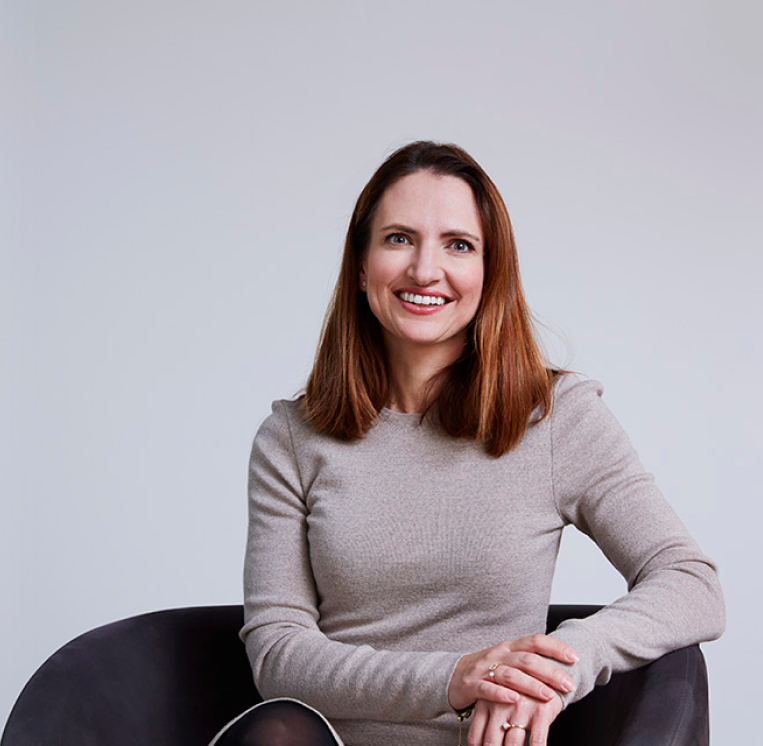Orbit Podcast
Orbit 52
Fevered determination: Building Zalos from zero to enterprise in 5 weeks
In this illuminating conversation from the frontier of AI-native startups, William Fairbairn, founder of Zalos.ai and part of Y Combinator's class of 2025, reveals what it takes to build at Silicon Valley velocity to Hg's Jonathan Wulkan. Just five weeks after launch, Zalos is already deployed with major enterprise customers, automating finance workflows through computer-use agents that execute tasks like humans—extracting contract terms, initiating billing, and reconciling cash.
Fairbairn's insights into Y Combinator's evolved wisdom for the AI era, particularly "forward-deployed engineering", demonstrate how the startup playbook has been fundamentally rewritten. With funding bars rising to $2 million ARR in 12 months just to reach Series A, and "supernovas" scaling from $1 million to $100 million in 18 months, this postcard from the edge of software leadership captures the intensity and opportunity of building in an era where the rules change weekly.
Listen on:
Episode Transcript
Jonathan Wulkan
Welcome to Orbit, the Hg podcast series where we talk to successful leaders of technology businesses and hear how they built some of the most successful software companies in the world. I'm Jonathan Wulkan, a partner here in Hg San Francisco office, and in this special episode of Orbit, I'm delighted to be joined by William Fairburn, who's the co-founder of Zalo.ai, a company that just received backing by Y Combinator.
While we usually interview established leaders on the pod, William represents a fascinating new breed of AI native founders building at the absolute frontier of what's possible. As a serial entrepreneur now focused on transforming the office of the CFO, he's navigating challenges that didn't even exist as recently as a few months ago. Building strategy when foundational capabilities are evolving monthly and competing against established SaaS incumbents. While the rules of software are being rewritten in real time, he's defining what businesses mean when AI agents can actively execute tasks rather than simply displaying information.
His Y Combinator backing signals, the quality of what he's building and his perspectives from the frontier of software are gonna offer really valuable insights for everyone in trying to understand where software's heading. So, without further ado, William, thank you for being here.
So William, I'd love to hear a little bit about your, your kind of background. You're obviously a serial entrepreneur. It's your first time living in the Bay Area. Maybe just kick us off with a little bit on you.
William Fairbairn
Yeah so, moved to the Bay Area a couple months ago. Absolutely love it here. It was before in the UK, and took a long path to get here from various explorations of technology. Straight after university I built and then sold my first B2B SaaS business. Not enough to retire, but, you know, great experience. Then was working with a variety of companies, and consulting. Really enjoyed my time in the tech practice with McKinsey. That was like helping some of Europe's unicorns build new businesses or big tech as well, grow quicker. And then spent a couple years as a general manager of a office of the CFO unicorn in Europe, and then have been building Zalos this year.
Jonathan Wulkan
And maybe tell me a little bit about how you got the entrepreneurial bug. When was the moment that it sort of hit you?
William Fairbairn
I feel like it was always what I'd wanted to do. I'd always seen a few entrepreneurs in my family from previous generations and I tried the consulting path for a while. But once you've tried building something, seeing it in the real world, trying to scale something and fix some problems. Yeah. It's addictive.
Jonathan Wulkan
Yeah. Well, thank you. I'm, I'm so glad that entrepreneurs like you exist because I certainly couldn't do what you do and then just have a lot of admiration for people that are sort of striking out on their own and really going after a vision and building something. I'd love to hear a little bit about Zelos and maybe before we kind of jump into everything else, tell us a little bit about your latest venture and what you're building.
William Fairbairn
Yeah. We are building computer use agents for finance operations. So we can log into any finance system like ERP, CRM or other point solutions from the finance system. And then our agents can start taking actions like downloading reports, categorizing, reconciling information as well. And then we can point these agents to a huge number of CFO workflows.
So to give like an example from billing, you know, maybe today, enterprise account executive gives a customer a bunch of custom terms, probably pretty much every customer they give customer terms to. And then at some point, by the time it reaches the accountants, something's got lost. That might be like, they didn't code it properly into the CRM, take like the full complexity of the contract there. Maybe it's the CRM to ERP linkage doesn't quite work. And then there's a bunch of downstream implications. Like customers get billing wrong or have questions, cash is slow to get applied, so it's wasted liquidity or investors not happy when there's contracted ARR versus cash performance, uh, differences, which I'm sure can happen now and then for your due diligence.
Whereas really what we should, what we do is we can go log into those systems, download, you know, the full contract extract key terms, push into the exact fields needed into the accounting system, initiate a billing workflow and that's also just one process that we can already do because really once we're logged in across these systems, we have the maximum context on the finances, the business to really build most agile automations that CFO needs at least if we can execute on our product vision. And so, yeah, that's what we're really excited about.
Jonathan Wulkan
How did you pick Office of CFO as the sort of area that you wanted to go after? I mean, there's so much that you could go do, and we're seeing really, really rapid AI native startups scaling in, in sort of every pocket of software. So how'd you pick Office of CFO?
William Fairbairn
Yeah, I think it's gonna be an extremely exciting one for where AI is going actually. So yeah, for myself, in my last job at Agicap, I spoke to hundreds of CFOs when kind of working with them to implement CFO SaaS. And there were a lot of things I heard repeatedly, like, all of them were going through. So many were going through like an ERP transformation. None of them ever wanted to go through it again. 'cause it's the corporate incentives that are just not there. Like, you get a 20% productivity increase for like 20% risk of getting fired as a CFO.
They've all got like several point solution finance tools that don't quite speak to each system properly and kind of a stacking manual processes or patches across it. And so there's been a, a big rise of AI native ERPs which are gonna do super well, but we've got really high conviction that 90 plus percent of the market is not gonna adopt those and they're gonna stick with that ERP at least in the next few years but there's a lot of automation to be built on top.
I think the other great thing about the office of the CFO is it's so deterministic. So I think it's one of the common misconceptions with artificial intelligence. You want judgment or intelligent workflows Yeah. Was actually for a great product, let alone a great customer experience. You want really rule-based workflows and finance and accounting is some of the most of that.
Jonathan Wulkan
How do you think about marrying up the sort of probabilistic nature of AI with determinist? This is something we talk about a lot at Hg because most of our software companies have some element of sort of deterministic workflow based software to them. But how do you kind of marry that, those two worlds up? And what's, what's a bit of the secret sauce there?
William Fairbairn
Really, one of the things we're doing is, so there's a couple things. One is, whilst there, there's some like random elements in outputs from LLMs, you can do a lot of engineering to increase that performance over time. One of those things is like really strong evaluation set so that you can help the LLM understand what good looks like to really high accuracy. The other thing is you can even have like, you know, grounding events like humans reviewing it as well to really confirm it.
Another part of the engineering is you're flipping out of LLM processes at the right time. So if you can not do an operation, like a calculation in the ERP, you would always rather do that in a CSV. So flipping it out to do that is a really important thing. And the final thing we say is that humans also aren't kinda perfect kinda mechanical operations but that's mainly the workflows we operate with. And we can screen record everything that our product does with computer use agents, which is probably not how a lot of accounting firms work today. So it should be a lot more accurate than humans. But yeah, you're right. It's one of the hardest things.
Jonathan Wulkan
And how do you think about reinforcement learning for kind of accelerating your product development and also kind of that deterministic aspect of the software?
William Fairbairn
Yeah. Reinforcement learning is absolutely huge, especially for what the product will be in 12 months. One of the key things we do is we're making a bet on where the underlying AI models are gonna go. In other words, we want there to be a new release as a browser used and later on computer use agent models. And then we can use our evaluation sets with reinforcement learning to get those to perform at really high levels for the workflows we're specialized in. So it's one of the core areas of defensibility for vertically eyes, building out those evaluation sets for RL fine tuning, reinforcement learning, fine tuning over time.
It's one of the kind of conceptions well that's like changed a lot in the valley is there was this view of like the GPT wrapper. Like if you just build a thin wrapper on top of an LLM Then you're gonna get wiped out by the next model release. And it turns out that view is now basically, in a lot of situations, 180 degrees reversed. There's huge amount of value in that wrapper. ‘Cause for vertical AI, the last mile is long. There's a lot of value in a 90% accurate finance workflow versus a 9900%. Yeah. And it's the wrapper that captures the human like reactions to the agent or other evaluation sets to make the models perform at a really high level.
Jonathan Wulkan
Gotcha. Yeah, I mean, that's a great segue into, um, you know, we, we've had this debate as well across many of our sort of Hg board meetings. How do you think about the push of the LLMs into the application space? And is that an opportunity for you guys? Is that a threat? And, and then also, you know, most of our businesses, I would say, have historically been the incumbent SaaS players. Many are innovating very quickly in AI. But how do you think about that sort of opportunity or threat both for some of the new startups, like what you are building and then also some of the incumbent SaaS players?
I think it's really important as well. I think it is a medium term threat. You're gonna have far more agent builders and people building agents than they are today. Even the concept of agent builder might not be around for that much longer because I mean, for our product, we train our agents from existing materials and existing SOPs, instruction guides from a finance team or from screen recordings and that will primarily, that will increase a lot for how individuals can build agents as well.
So you won't even have these sort of workflow builders being as popular as they are today. And what they're gonna be able to do is, it can be a lot more powerful over time. And really as a vertically AI company, you're always trying to stay kind of 12 months ahead of what's possible to self build and…
Jonathan Wulkan
Skating to where the puck is going, basically.
William Fairbairn
Exactly. Exactly. Um, and you gotta know that whatever you're building the risk of like insourcing is gonna be increasing over time, so you have to always be 12 months ahead.
Jonathan Wulkan
Yeah. Yeah. And I'm sure you're even seeing, I wonder if anyone in your Y Combinator class has kind of spun out of a corporate where they've had a great idea or tried to build something, sort of, in-house and then just launched it as their own company. I dunno if you've seen that at all.
William Fairbairn
I dunno about a Y Combinator one, but our Y Combinator partner, who's Tom Blomfield, he founded Monzo, which in the UK is one of the most popular banks. And I know that from his, from in Monzo, there's a number of teams such as instant.io who've built the Monzo way of recognizing some sort of fraud risks that happen inside of them and then spun out and then, then off that to a huge range of tech companies in a general way. So yeah. I think that can work really well.
Jonathan Wulkan
Yeah. That's amazing and it's funny that you moved all the way to the Bay Area to work so closely with the Brit, so just come full circle.
Maybe just switching gears a bit, I'd love to hear a little bit more about kind of how you got into Y Combinator. I mean, it's, it's really remarkable, you know, such a legendary brand for lack of a better way of putting it in, in Silicon Valley. And I understand you're one of about 200 companies out of an application pool of what, what is it, 20,000 that, that actually got accepted into the program, but may maybe talk to, to us a little bit about what did it mean to you when you got accepted? What does it mean in terms of resources, your peer group and, kind of give us a real flavor of what it's like living in the, the YC ecosystem?
William Fairbairn
Definitely. So I’m massively YC-pilled massive, like believe in the importance of Y Combinator
Jonathan Wulkan
And YC pilled. Is it,
William Fairbairn
Uh, this is a phrase, you talk about being like, uh, AGI-pilled-RL pilled. Yeah. Like very hyped. Yeah. Yeah. And you can tell that I'm spending a lot of time.
Jonathan Wulkan
It's got all the Bay Area language already too.
William Fairbairn
Exactly, and Y Combinator is a very young community as well. They've really got a preference for Gen Z, Gen Alpha as well.
So we're really lucky to get in, very lucky that there's a British partner now at Y Combinator, Tom Blomfield, who does a lot of kind of events to help companies realize how useful it is to move out there. And really it's gone through a huge resurgence over the past couple years under Gary Tan built this deep specialism in vertical AI as one is like multiple other things they do as well. But the pattern recognition they have by seeing hundreds of vertical AI companies every year, try a variety of things, figure out what's working. I mean, they actually have a, a huge number of playbooks and ways to operate already, which are really useful.
So there's like the old YC, you know, 20 years old, some really great startup wisdom. Like build what people want, be like core mistakes, startups don't do enough, or growth solves all issues, which may be one of my favorite ones that of the old wisdom. Like You're debating like, what product features should I build? Should I hire a lawyer to go do some random things? Should I hire an employee? And the only answer is like, what makes you grow 20% that week? And that's what you go do
Jonathan Wulkan
That Week. Wow.
William Fairbairn
Yeah. Absolutely. Um, but then there's also like this new YC like yeah. Understanding of how to build AI companies where they've seen what's worked to help us realize that really quickly.
I think one of the really big things right now is for deployed engineering. So one of the old YC wisdom was do things that don't scale, right.
Jonathan Wulkan
Things that don't scale.
William Fairbairn
Yes. Yeah, exactly. So like count intuitive advice, but that was so popular for like Web 2.0 companies. Right. The canonical example is Airbnb. Yeah. Who to get the marketplace off the ground would go round to every flat. Brian Chesky, the CEO would go to every flat take better photos for the flats Yeah. To put them on the website to make 'em more marketable. Yeah. And that got the marketplace dynamics going. And of course no longer goes to flats anymore. It's totally unscalable.
Um, and that was being applied to a lot of those like marketplace dynamics from the mobile era and now forward deployed engineering is the phrase is do things that don't scale at scale. Where if you are getting the right product experience, the right pricing model. Right. You should just be able, you can't try and keep doing forward deploying for a lot longer than previous companies would. Where forward deploy engineering is, you will go, you have your core product, you go onsite for each customer, and you'll help build the right products to fit into their workflows and map the workflows so deeply.
And now Y Combinator's got a number of companies that grow, and the phrasing Y Combinator is grow to 12 million in 12 months. Which is, you know, maybe done by a few per batch. Yeah. And it'll be our aim, but the way that they all most seem to do it is this forward deployed engineering model. Yeah. So that's one of the, like the new bits of YC wisdom.
Jonathan Wulkan
That's really Useful. Yeah. No, that, that's remarkable. I mean, I'd love to touch a little bit more on this forward deployed engineering point and, right before we sat down, we were having a bit of an off-camera chat on this. We have dozens of companies in our portfolio, and I'd say the ones that are really kind of taking AI the most seriously and trying to get furthest ahead, they're totally following that model. They have the inertia of a big business that they have to go and kind of disrupt from within. But we're seeing massive results from, you know, we have the benefit through incumbency of being really close to the customers already. And so we have the right to kind of go and forward deploy.
And we're seeing a lot of sort of quick traction there, but may maybe talk about how you're getting in the door to, to go and actually do that as a startup and also why it's so important in a bit more detail.
William Fairbairn
Yeah. I think it's fantastic your company's doing it. I definitely believe this is the way to do it. One of these AI phrases as well is like, it used to be buy or build. Should I build the software internally? Should I go buy from a SaaS provider? And now it's buy and build. It's maybe like one of the core procurement phrases for a lot of Bay Area tech companies. And I'm sure it's flowing across to other corporates, fortune five hundreds as well, because, I mean, firstly it's got a lot easier. It's no longer the case. You kind of spend, you know, six months building your SaaS feature. You need to keep that highly scalable for when you go push it to everyone else.
Building software or manipulating the AI backend for customer has got a lot quicker and easier. So that just totally makes sense. I think also because AI, you're going after like these human workflows, they're way more inconsistent than from company to company. Some offices of the CFO SaaS is often going after Excel workflows. So they're gonna be a lot more similar each time, whereas how like yeah. One company does their billing or one company does like, you know, some bits of the source to pay that matter most. It can vary a lot.
Um, and then to your point as well, to get to stickiness, that's the other thing is one of the main ways you can get stickiness is just completely modeling out the workflow in a perfect way for them. Maybe building out some success, success-based pricing as well. Uh, that makes it Yeah. Way more economically viable for them to work with a Company that's doing that versus they try and build it all themselves. And then we can be experts in our technology as well, both that we improve the product for what we see, uh, as a repeated problem for customers, and we can also understand how to build the fixes the patches very quickly.
So to me it makes total sense that AI companies should have more of this, you know, services component for a long time to get to the really rich process.
Jonathan Wulkan
And we were also having a bit of a debate on sort of, for lack of a better way of putting it, easy come, easy go. I think at Hg we absolutely believe that, you know, agentic AI is the future, we're gonna have to innovate incredibly quickly across our portfolio and also internally at Hg with how we really leverage AI in everything we do to, to get to that future.
But you've seen companies scale up massively sort of unprecedented pace and obviously a lot of press around, you know, many companies doing that with fewer and fewer employees as well. The question that I think we've debated a little bit is how sustainable is that? Is that revenue, just given the scale ups been so rapid, what's to stop sort of the next generation of company from coming in behind and displacing that? And we were talking about it a little bit just now in the context of being forward deployed the sort of success-based pricing models. What, what gives you faith that, when you've sold into a customer, you're not selling into an experimental budget, you're kind of there to stay. Because the barriers to entry I think are just a little bit different than, than they were in SaaS.
William Fairbairn
Yeah, definitely. It's something to be really mindful about with like Yeah. The product direction. I think, well the, one of the first things that's really interesting is where we can start as a startup. If I think about like yeah. Agicap where I used to work or like the common like SaaS playbook, it was basically start with SME, you know, build your wedge there. You add some more features to go into the mid-market. And then you're trying to get up to enterprise. 'cause you know, enterprise is super sticky. Uh, you can stay with 'em for a long time. Complex workflows they'll spend a lot of money on. I can't remember what the spend is by it on like SaaS, but you know, it's all dominated in enterprise segment and they don't really, and much lower churn as well. Once you are right inside.
Now that model is almost flipped. Like we will start with as bigger companies as we can realistically get into quickly. And we've had quite a lot of success with, you know, companies with, you know, billions in revenue already. Being customers. And we'll build out the right product experience for them, which should be a much more sticky, uh, 'cause we're building things completely custom and over time we can make it increasingly self-serve to come down the market and make it easy. I feel like users inside the enterprise customer to self-build agents or for smaller companies as well to trial it. And they're more like product-led growth motion.
And I would say also for vertically AI as well, in terms of the incentives, I think yeah. For some areas like code gen, you know, those things are growing very quickly, but where it's the developers choosing to buy the software themselves, you know, they can be pretty, discerning, uh, maybe that's at more risk. Whereas for like, you know, corporate buys into an enterprise platform Yeah. For finance, for law, for doctors. You know, I'd expect that to be More sticky there, but yeah, you're right. It's all to play for.
Jonathan Wulkan
Yeah. Yeah. Absolutely. It's gonna be amazing to see how it plays out. You've been an entrepreneur in a previous gen SaaS business and then now, kind of AI native. Maybe talk to me a little bit more about some of the differences between building those two businesses and then you also take our portfolio and what we've spent most of our time historically on in context. What advice would you have for the SaaS incumbents to avoid being disrupted by folks like yourself?
Okay. I'm gonna put you on the spot because…
William Fairbairn
Yeah, that's great. Well, yeah. In terms of my entrepreneurial experience, I mean, these could not be like more different. I was doing bootstrapped so Yeah. Was not raising VC funding. I felt really TAM constrained in the market I was going after, you know, they're only ever gonna spend like a few hundred, a few thousand dollars per month on the software I was building. Um, so yeah. Ended up selling it because the growth rate was so slow and then I cannot see it being that big an outcome.
Whereas now for AI, it's just building startup on like complete steroids. Like super high risk, high return, you know, the TAMs that we are all going after are just mind blowing at the big picture level. We're going after 10 trillion spent on labor in the US versus, you know, that few hundred billion spent on software. And that's also is like spent today like, you know, you can imagine a world that we can make things more productive that things can grow a lot quicker as well. So yeah. For each niche market, we're all going after these massive amounts of spend and swapping out labor to software.
I think the other dynamic though for investors is, you know, there's never been more capital. There's a lot of capital around for AI companies. You know, an adjacent area to us is AI, native ERPs. That's like a view of the world that people are either gonna churn from an incumbent like a NetSuite and put in one of these new players. Or new people graduating from QuickBooks will take them on, which I think will do very well for some areas.
You know, those companies have raised 50, a hundred mil and they got founded two years ago, so there's a lot of money there if you're growing quickly. But the bar is also extremely high and goes up so quickly every year. Right Now if you don't grow to $2 million in 12 months, it's pretty hard to do a Series A.
Jonathan Wulkan
And maybe compare that to the SaaS era.
William Fairbairn
I dunno the benchmark stuff in my head, but I mean Yeah. And there's no way I was on 2 million revenue with the business I was building before. But I feel like yeah, typically you would expect to get to maybe a few hundred K after 12 months.
Jonathan Wulkan
And so two million’s the minimum bar, what's good look like and what would best in class look like.
William Fairbairn
Yeah. Best in class. Well, maybe top 1% or top few percent is 10 million, 12 million
Jonathan Wulkan
Within 12 months. The 12 months mantra.
William Fairbairn
Yeah. Exactly. And then there's even this like out of this world category, which some people call supernovas, and these can do go from 1 million to, you know, a hundred million in like 12, 18, 24 months. Just mind blowing what's possible if you get it really Right.
Jonathan Wulkan
What's your best guess on the probability of success for sort of the typical SaaS company and how do they avoid sort of being, is there anything they can do to avoid being disrupted?
William Fairbairn
Yeah. I think one of the things we think about is also where the world's gonna be in 12, 18 months and base basing our, you know, product go to market strategy around that. And then I think that's where we're seeing a massive implication for SaaS companies. There's three tech trends we're basically betting on. One is browser usage agents, like go in, use a browser for cloud-hosted ERP or whatever it is. Um, that's probably at like GPT-3.5 right now. You know, you can understand HTML, make some basic actions.
There's computer usage agents, which maybe like GPT-2. Use a desktop application like SAGE desktop or MyDocuments. And the final one is accounting expertise. The foundation labs are buying up a lot of data and hiring a lot of people to get far better at finance, accounting, and Excel.
Jonathan Wulkan
We saw the news of a hundred odd investment bankers hired by OpenAI this week to go basically train the model how to be an investment banker. That's the trend you're talking about.
William Fairbairn
Yeah, exactly. And so yeah, with these three things, it's gonna be absolutely transformative for finance accounting as like a total industry in the SaaS companies as well.
I think if things don't change for a SaaS, if it you just leave a an ERP as it is today pretty quickly, or just get used as a database by more agent players where they'll just come in, log in and pull out all the data they need at a given time and then start automating the human workflows beyond it. We've already got a customer who's likely to get rid of a point solution SaaS where an agent plus the ERP can do the job of this AP platform. So they'll just Yeah. Avoid it. And Yeah. After a couple years, a few years, ERP is, uh, a bit horizontal and Yeah. It's just not offering agentic automation, I think they're probably at high risk of that as well.
Jonathan Wulkan
Yeah. No, look, we actually have a very similar view, which is why we're pushing so hard. And our executives are pushing incredibly hard to be kind of closer than ever to the customer. You know, we think it, it's again, the forward deployed engineers, uh, model that you were talking about. We think the importance of being highly verticalized, highly kind of close to the customer, really understanding the workflow intimately and mapping that out in massive depth. I mean, that's all gonna be so important for where we have to point our sort of resources and go and really sort of drive our products forward.
I think if we can get it right, our view is that we've already earned the trust of those customers. What they're looking for is sort of real innovation, on top so that we can be the agentic solution of the future and the ones that get it right, I think have an enormous opportunity ahead of them. And the ones that don't, we'll see what happens there.
William Fairbairn
Yeah. I think the ones I see it being a highest risk are Point solution SaaS that kind of don't quite stick into tools, that which drive CFOs up the wall, and the other thing is, the other thing I think will change quite quickly is the offshoring market for financing accounting. It's the biggest part of the offshoring market for the US is a lot of people doing these basic tool things like reconciliation capitalization, billing, um, and I think the vast majority of that will be done by agents very quickly. And then I, the interesting thing will be how the role of these finance, uh, team members changes as well. You know, far fewer people working on those topics like billing AP.
I think you'll see much bigger roles for things like strategic finance. I think that will become a much more common role for more companies and much bigger as well. 'cause they'll be far more powerful if they have, you know, a daily P&L, customer based P&L to make decisions.
Jonathan Wulkan
And how do you think about the challenge of sort of upskilling versus reskilling people in these existing jobs? I mean the, the example you just walked through, I think is a great one. You know, freeing people up from the kind of monotonous tasks to be much more sort of strategic thinkers ultimately, how do you see that playing out?
William Fairbairn
Yeah, that's interesting. It's definitely will be incumbent on the people within the industry to learn how to use these AI tools. Uh, 'cause the ones who do will free up one, two days a week, be way more impactful for the company, take on the strategic projects that add way more value to the CFO and the CEO.
And I really think when I've been inside companies or what I was doing inside of McKinsey, you know, McKinsey comes in to frame big strategic decisions with numbers because, you know, people are so stuck in their day-to-day finance admin that it's very hard for them to free up the time to do that. So I think there'll be far more decisions that can be made more analytically, maybe less need for consultants as well to come in. I think it'll be an exciting time to be a CFO.
Jonathan Wulkan
Definitely. Maybe just going back to Zalos for a minute, and your experience in the Bay Area and building a company. You mentioned that most of your sort of classmates are Gen-Z, Gen-Alpha. What are some of the sacrifices that you've had to make to be all in on building Zalos and what advice would you have for someone sort of thinking about that as well?
William Fairbairn
So it's definitely true. Yeah. That the average age of YC’s come down a lot. I think it was 24 median in the last batch. And it used to be 30 pre AI. I don't know which direction it came from supply or demand, but for sure a lot of these, uh, people are fantastic at being like really first principled thinkers about what's possible with AI and not encumbered by like what SaaS used to do and then will just do the same thing incrementally better.
So it's, yeah, it's really high energy atmosphere. In terms of sacrifices. So the one that we all make in YC is we work extremely hard. There's this phrase on LinkedIn about 9, 9, 6. I do not know a team in YC doing 9, 9, 6. We all do seven days a week. Our team as well is for sure racking up more hours than 9, 9, 6. Um, because, you know, you, it's not meant to be sustainable. You're here for three months Two months before fundraising. You just push your mind and body as hard as you can and get a huge amount done and set the company culture to maintain that after.
And then for sure, me personally, you know, leaving my family in the UK being on a very different time zone, and same for my co-founder as well. It is extraordinarily hard. Um, but we do it with the support of our families 'cause it is a phenomenally special place here. In Silicon Valley. It's, it's more special than I realized actually.
Jonathan Wulkan
Yeah. And, you know, I'd, I'd love to touch on that briefly, you know, brief commercial for San Francisco. I feel like it's, it's really back, um, may maybe talk about your experience. It was kind of your first time spending real time in the Bay Area, but how, how different does it feel from the UK in terms of what people are talking about, the energy, the sort of access to resources that you have here?
William Fairbairn
Yeah, absolutely. So it's absolutely alive with a) technology b) AI, you know, walk down the street and it's, every bus is being advertised on by like some AI company.
Jonathan Wulkan
Yeah. Got the AI billboards on 101.
William Fairbairn
Exactly. Yeah. It's so exciting. And then it's so tightly networked as well. You know, you go to these events and maybe, you know, in the UK one in three events you'll meet someone really interesting. Whereas in SF we just seem to keep meeting you really interesting people, really engaged from it.
Um, and it's interesting why it's the case as well. I guess there's been just a huge amount of like, wealth created over time creates this like really win-win mindset that companies do well here. Maybe the first startup doesn't work, but generally everyone's building careers really effectively. So a lot easier to take risks and help people out as well.
Maybe there's something about the weather. I mean, it's definitely noticeable from the UK where, you know, October, November is kind of dreary, rain-filled months. Whereas in SF it's beautiful. Blue skies and sunny, uh, and really healthy culture as well. Like healthy food. Not a lot of, um, entertainment as well. People are pretty locked into work, to be honest. Um, which works really well.
Uh, and yeah, where we live, we live right next to the Y Combinator campus and there's apartment block of like 60 flats and I think 90% are startups.
Jonathan Wulkan
That's amazing.
William Fairbairn
Walk home, if I go for like a walk, get some dinner, walk back at nine o'clock, every window has teams working. With whiteboards up and like monitors in the window.
Jonathan Wulkan
That's amazing.
William Fairbairn
So yeah. The energy is just really special.
Jonathan Wulkan
Yeah. Yeah. What, what advice would you have for, um, other European founders, entrepreneurs? You know, most of our portfolio, most of our team is, uh, is in Europe. So what advice would you have for them on how they can be closer to the action even if they can't spend three, six months in, in the Bay area?
William Fairbairn
Yeah. Well, I think for founders it's so important because at least for my UK experience, the ecosystem is maybe almost like a dangerous, slightly more advanced level where it's totally possible to get pre-seed and seed money. And maybe your series A and the UK market TAM is like big enough to go get your first few million revenue. Um, but then it's gonna cap out. And I feel like for some people where if they were in a less mature market, they know how much more important it's to get to SF. So I think actually it's, it's actually massively underrated in the London tech scene. How useful it is to get to Y Combinator and build your startup here and then for others.
I've got a friend building a vertical SA who's done their offsite here. I think that's, yeah, that should be a really common thing to do. Frequent periods here, both the, yeah. Join some of the events which are much more high quality. Um, uh, go into some of the startup offices and see how they work as well. See some of like the latest demos. Yeah. I think it's really important.
Jonathan Wulkan
Really cool. Maybe tell me why you, why you named the company's Zalos.
William Fairbairn
Yeah, exactly.
Jonathan Wulkan
And what it means.
William Fairbairn
Um, so love greek names, and then Zelos is near the word, ZELOS, which means ‘fevered determination’ in Greek.
Jonathan Wulkan
It’s what you need, right.
William Fairbairn
Exactly. Yeah. It's what you need for AI. Um, and then yeah, slightly changed it to get the AI domain and then, like you say, my son's called Atlas, from a couple years before, before, the new OpenAI browser came out.
Jonathan Wulkan
Yeah. You got to the name first. Maybe before we kind of let you go back to the very busy day job, talk to me about what kind of the vision is for office of the CFO in the next five to 10 years. How do you see that evolving and how will you guys be a part of it?
William Fairbairn
Our vision is we're gonna be logged into all the finance systems that a company has. We'll have the maximal context for our agent automation, and really over the next few years, we're gonna be able to start automating away a huge amount of the tasks that happen within the day-to-day of a finance team. And either that'll be us, that'll be other people who can innovate quickly.
But I think the role of the finance and accounting division is about to change massively where it's rule based or process driven. I think a huge amount of that is now on the table for agents to take over the next few years. And then we're gonna see the finance function shift around that as well. So way more roles who are strategic, helping the CEO and business unit leaders make decisions way fewer roles offshore and complex for what the junior finance people will do. But I'm sure things will always come up as well.
Jonathan Wulkan
Yeah. And, and, and maybe very last question. Um, tell me a little bit about what's next for you. You know, you're kind of halfway through that three month YC sprint. Uh, what, what comes after?
Yeah, so really excited to bring on some more angels and some bench capital investors to really build out our product vision, which will be increasingly complex agent automations for some of the main CFO workflows, like order to cash or source to pay, um, and really take our best shot possible at the 12 million in12 months.
Jonathan Wulkan
Yeah. Well, I'd love to be part of that. So maybe let me know when you, when you're looking for those angels. William, thank you again so much for coming in. I know how incredibly busy you are building your business, and so thanks again for coming and it's been a great conversation.
William Fairbairn
I've enjoyed it a lot. Thanks, John.
Orbit episodes
Orbit Podcast
The corporate immune system: Google Cloud's Daniël Rood on building Europe's first AI team
Episode detailsOrbit Podcast
Skin in the game: Professor Neil Lawrence on vulnerability, accountability and why the next generation will thrive.
Episode detailsOrbit Podcast
The 3 speed problem: Oji Udezue on CPO leadership in the age of unlimited engineering
Episode detailsOrbit Podcast
Trust, velocity, and building the Answer Engine: Dmitry Shevelenko of Perplexity speaks to Farouk Hussein
Episode detailsOrbit Podcast
The long road to the last mile: Nic Humphries and Matthew Brockman reflect on 25 years of Hg
Episode detailsOrbit Podcast
AI, Control Points, and the Next Wave of Vertical SaaS with Tidemark Capital founder, Dave Yuan
Episode detailsOrbit Podcast
A glimpse of the next generation: Zoe Zhao and Annalise Dragic of Azlin Software
Episode detailsOrbit Podcast
The business case for AI: Brent Hayward of Salesforce, David Carmona of Microsoft & Nagraj Kashyap of Touring Capital
Episode detailsOrbit Podcast
Mastering the billion-dollar software playbook: Joe Lonsdale of 8VC & Eric Poirier of Addepar
Episode detailsOrbit Podcast


